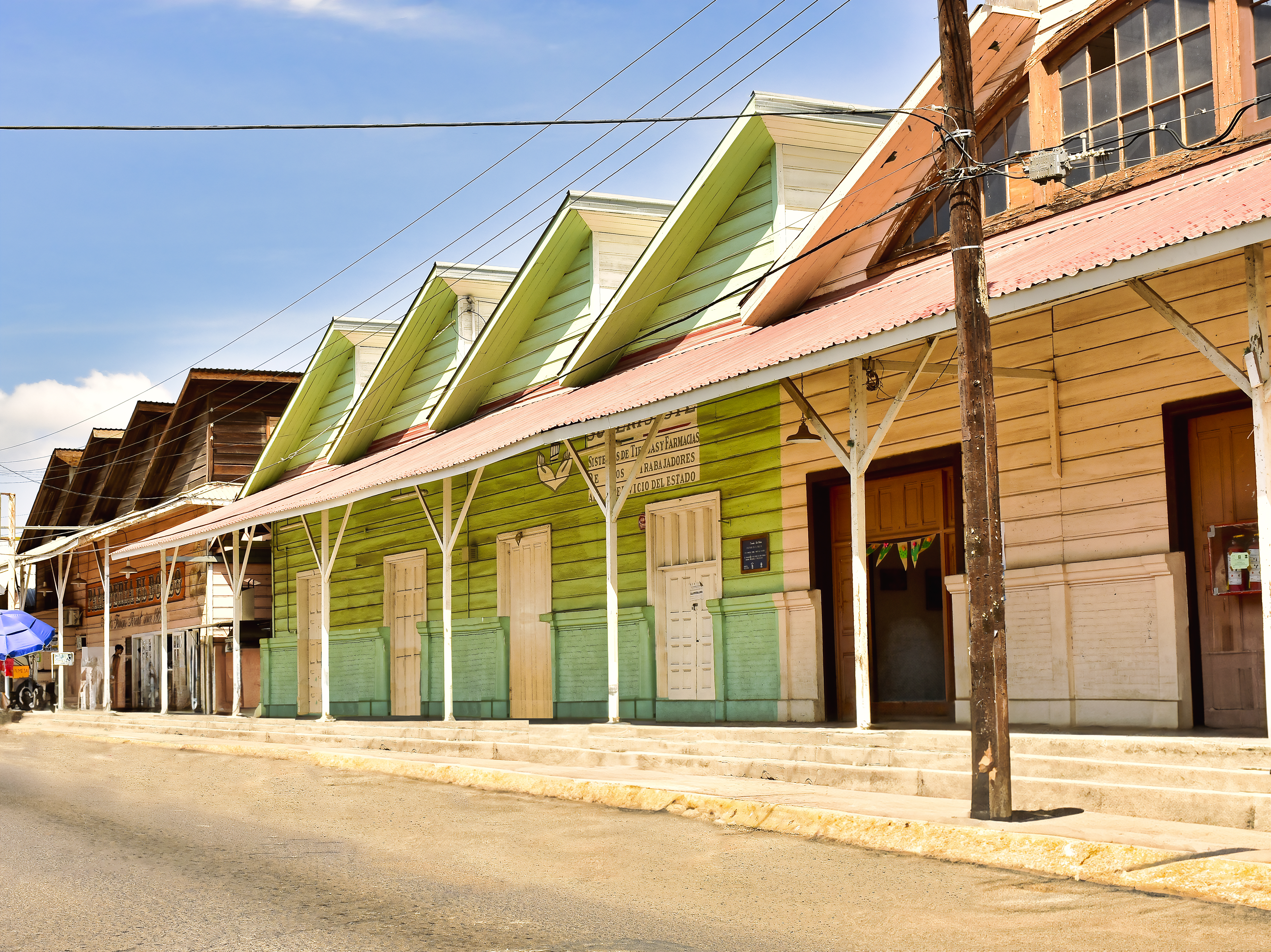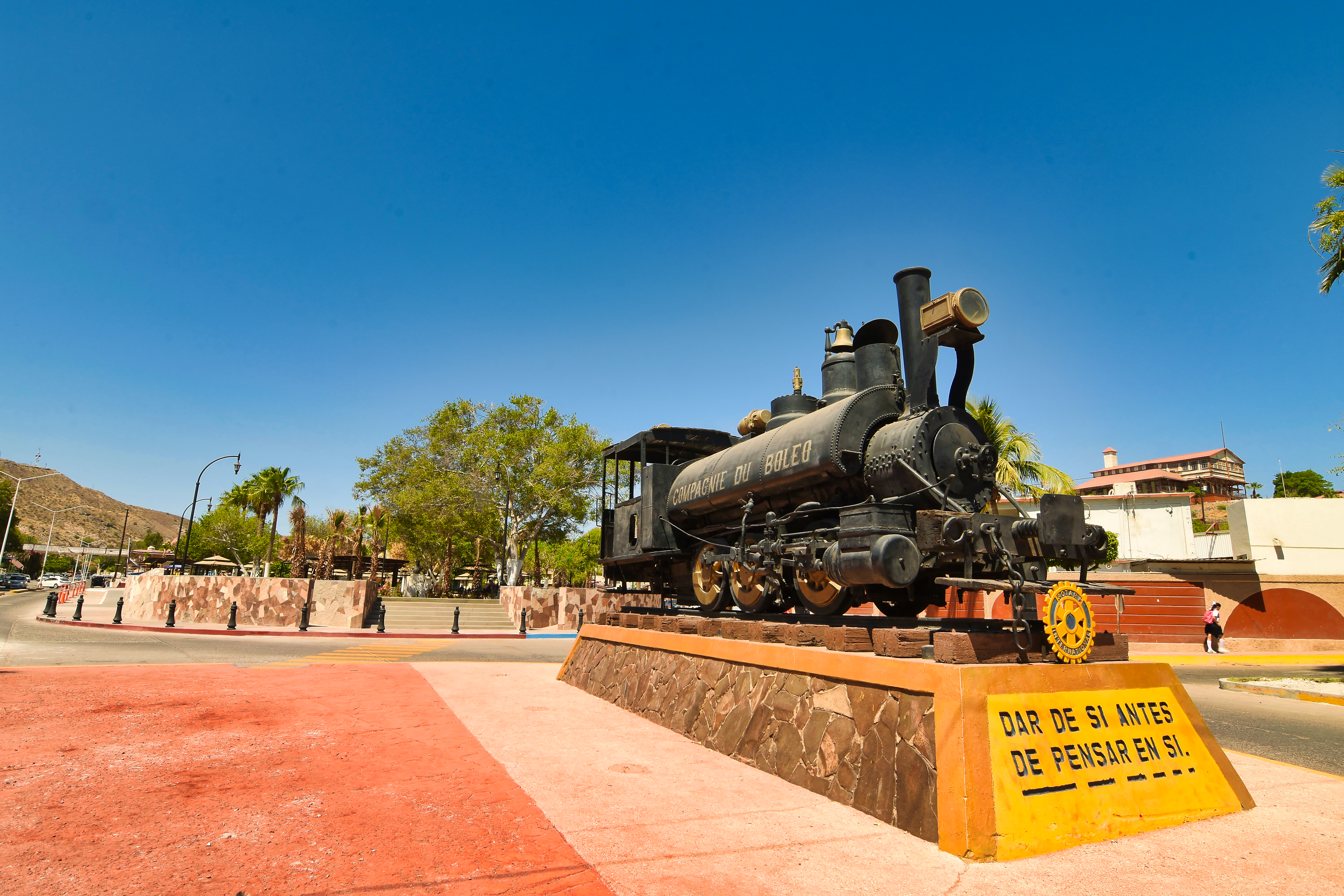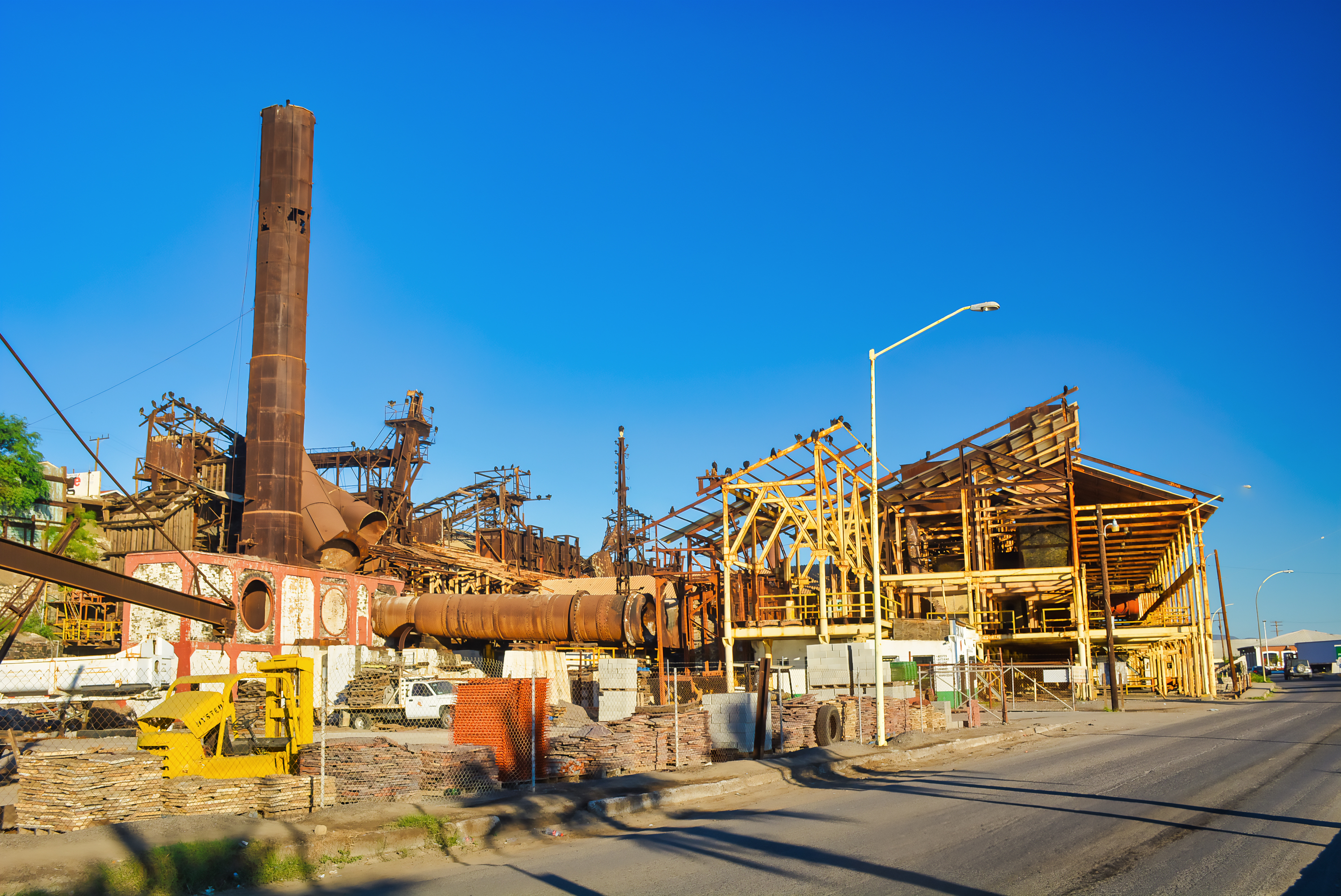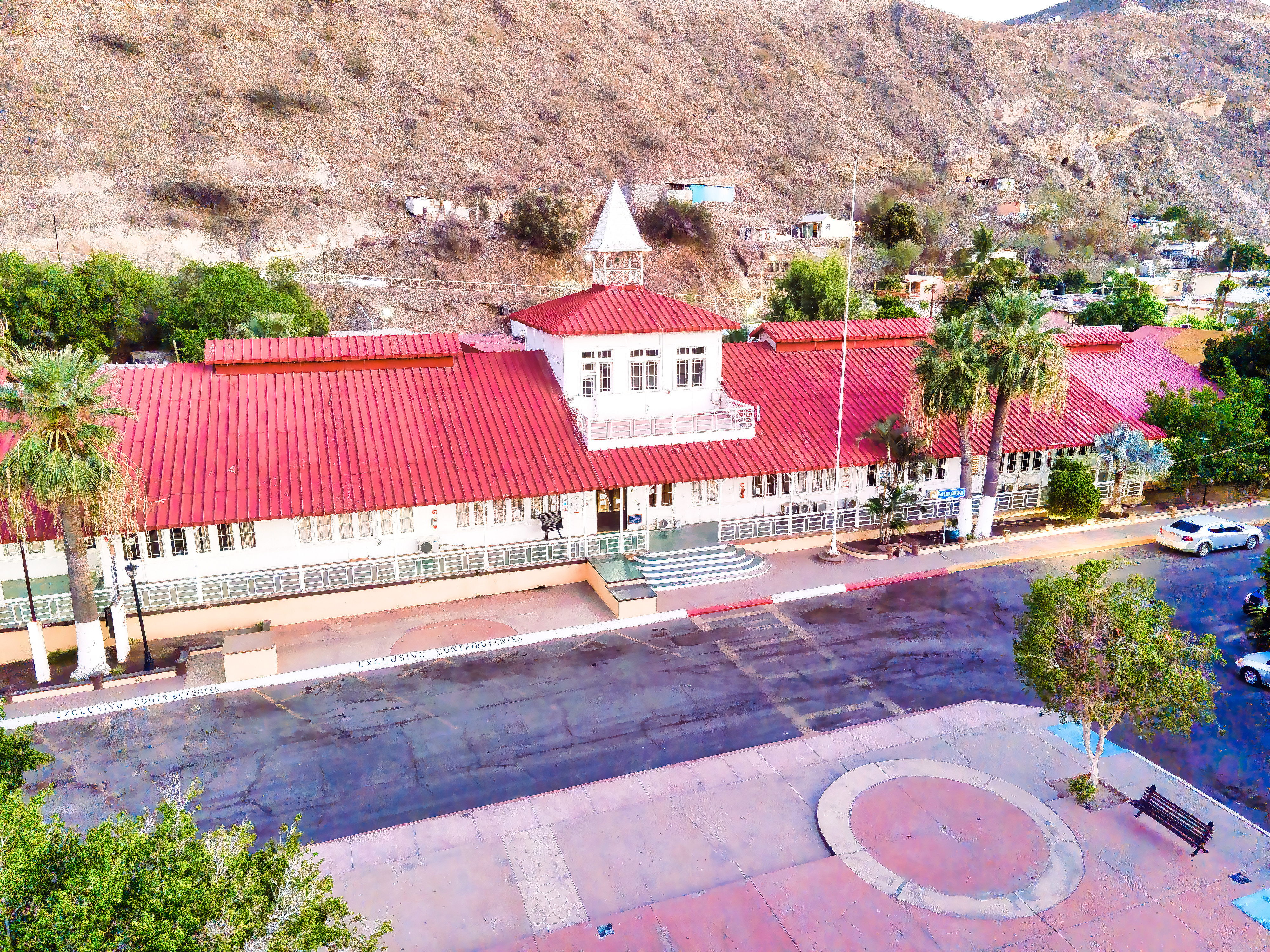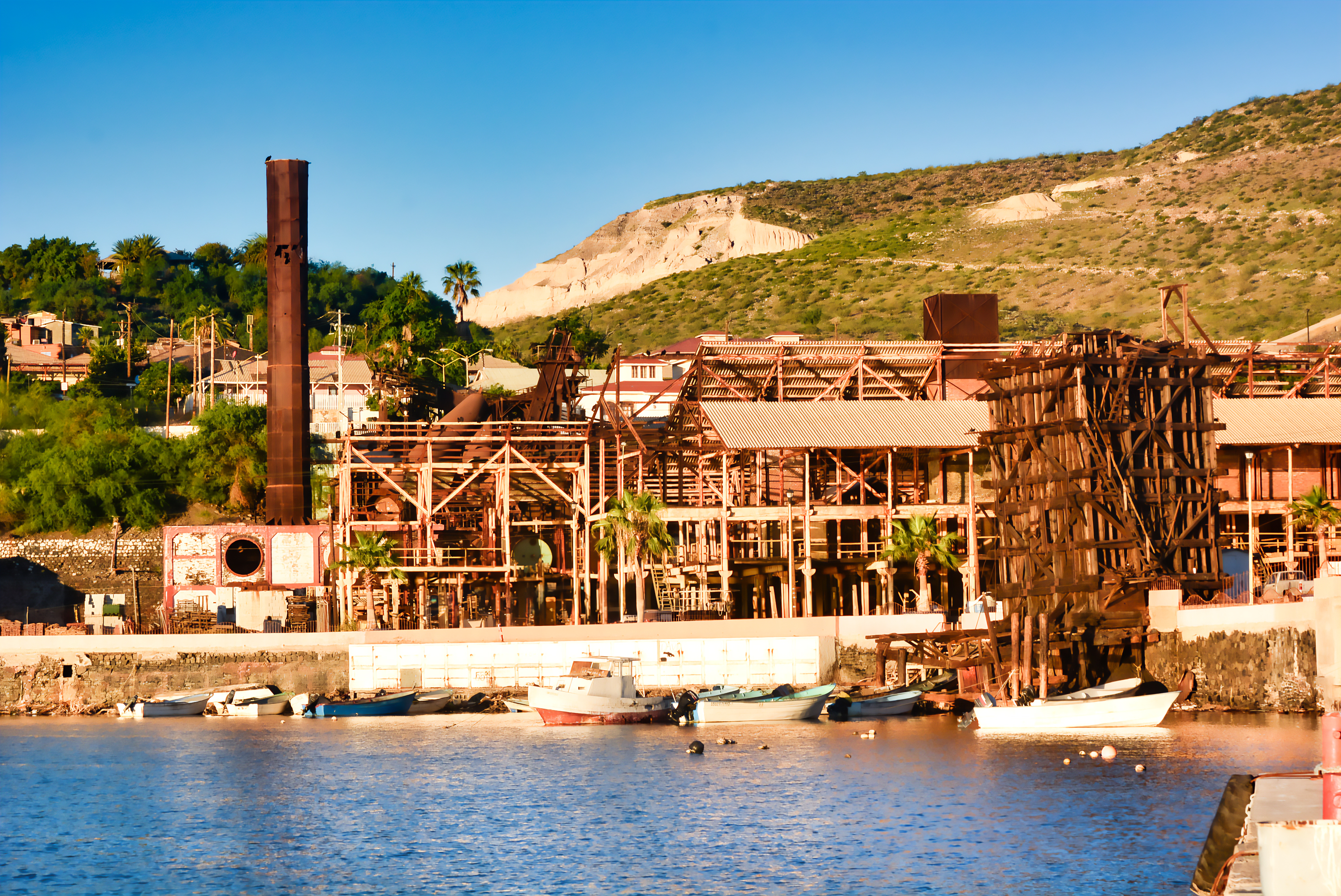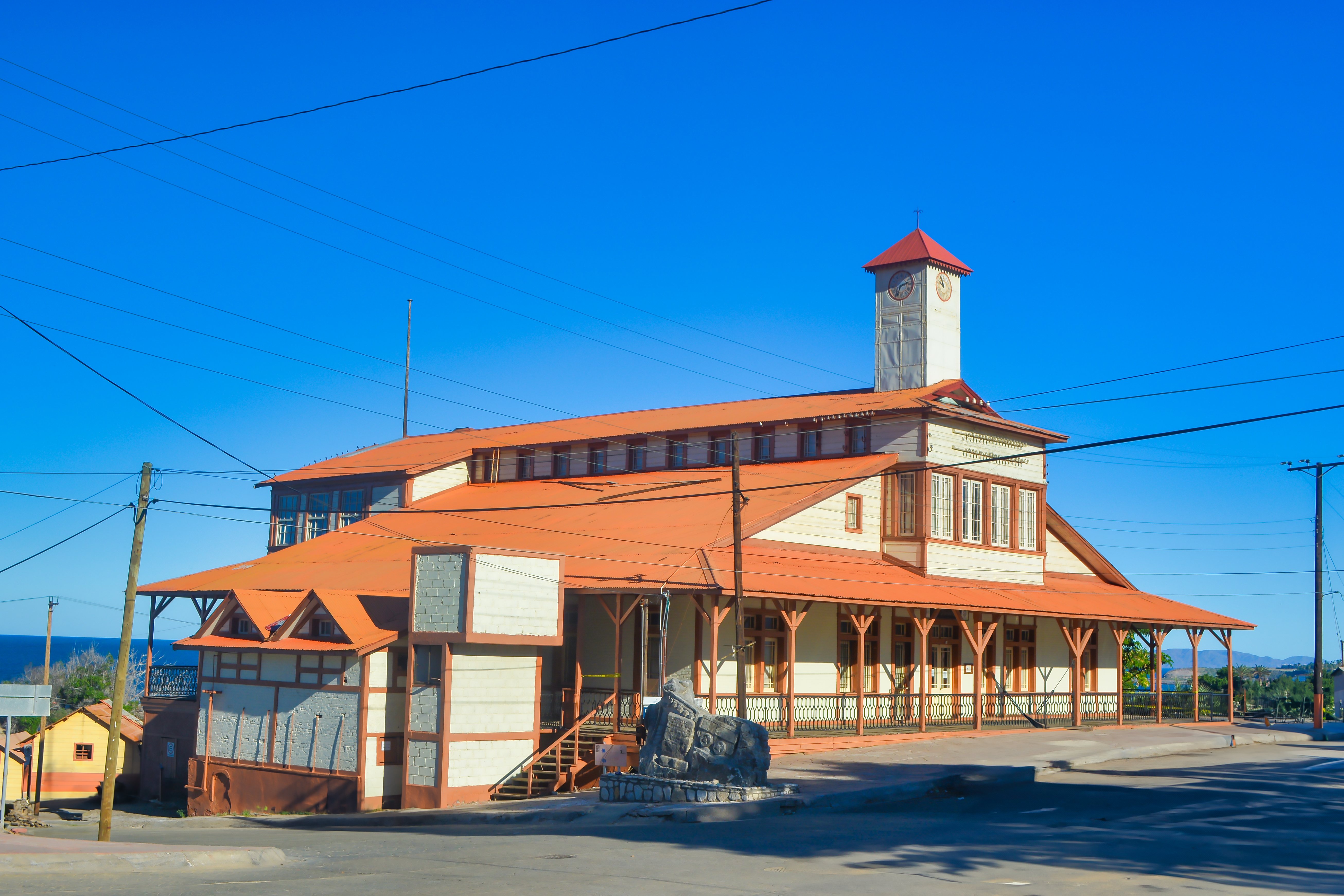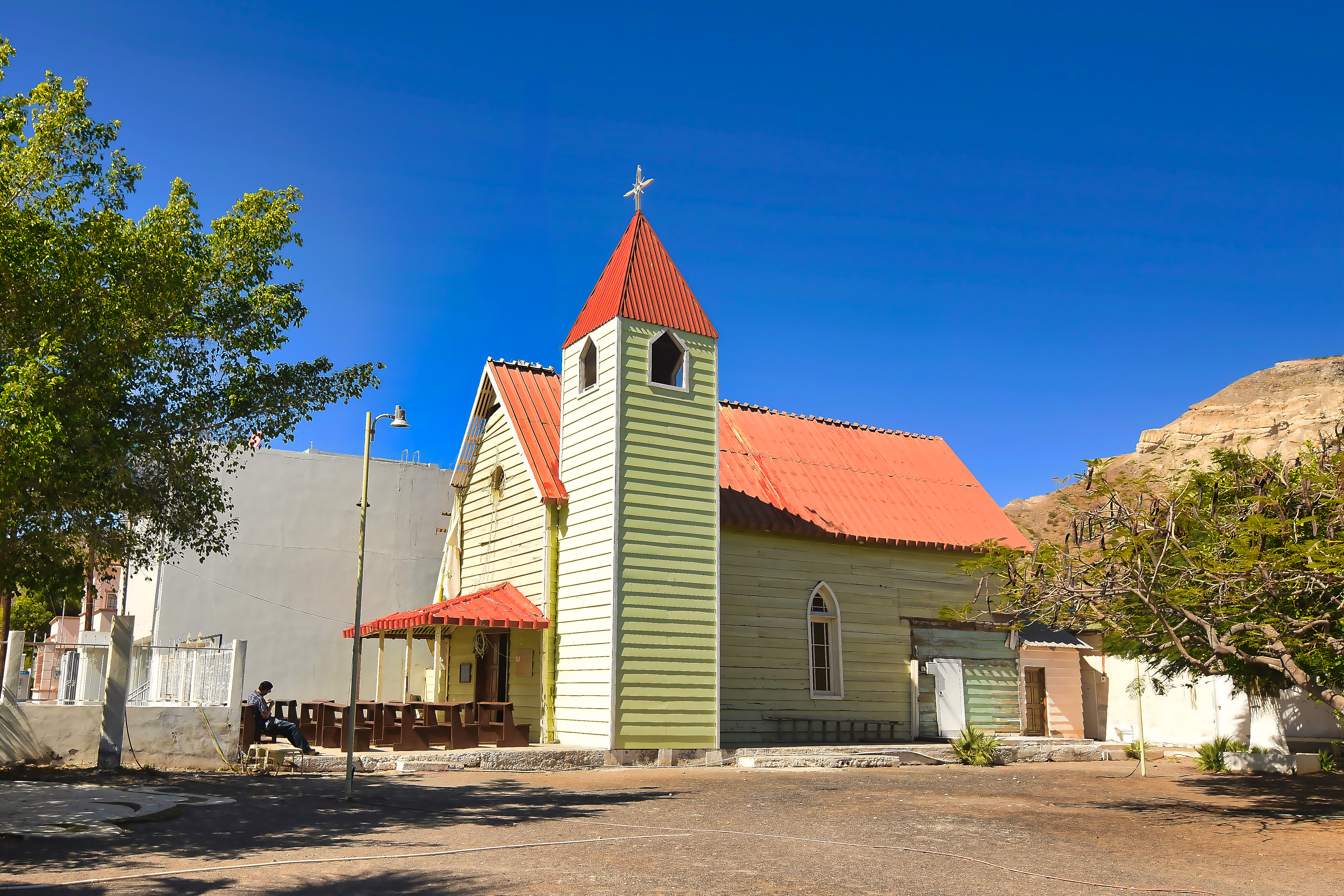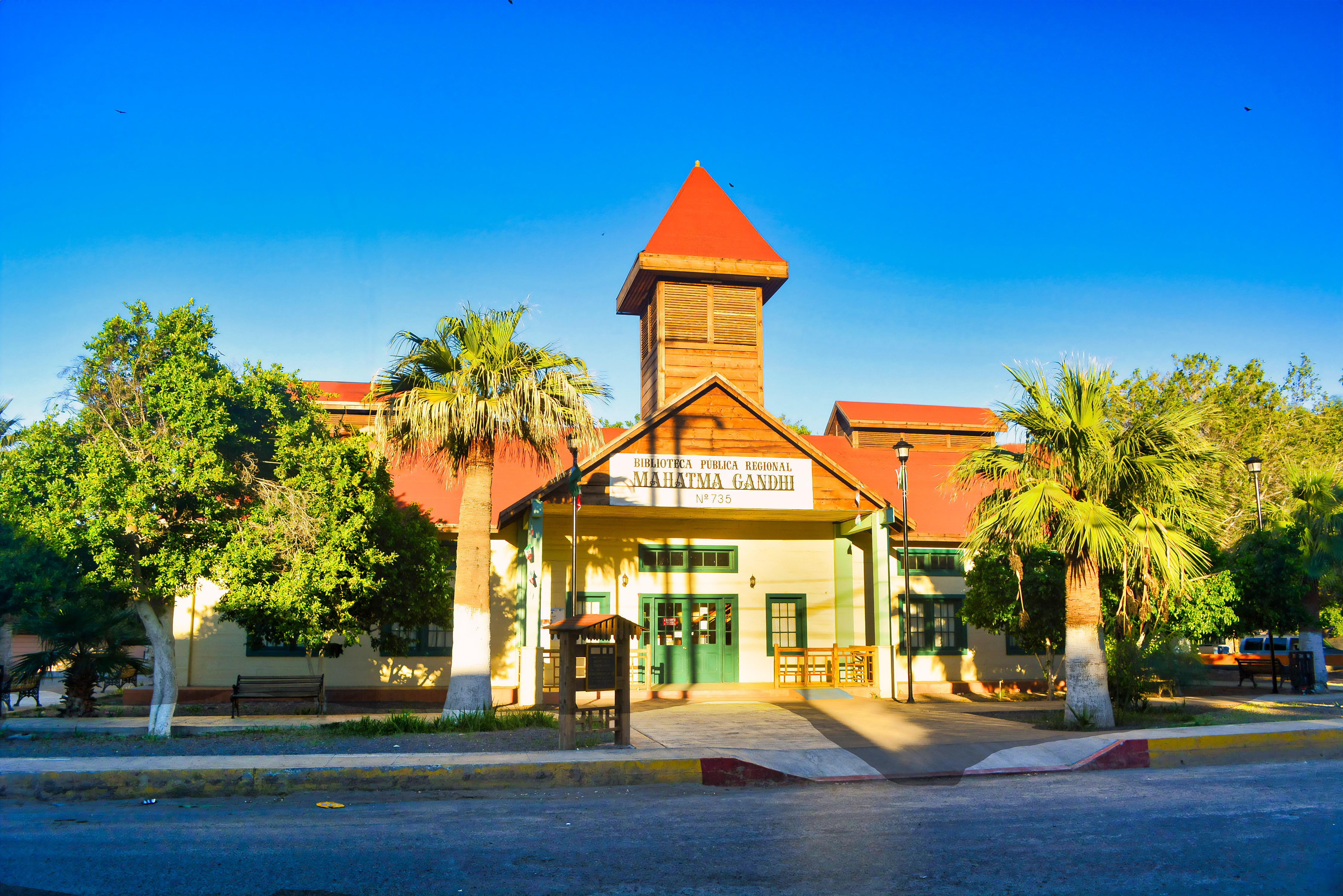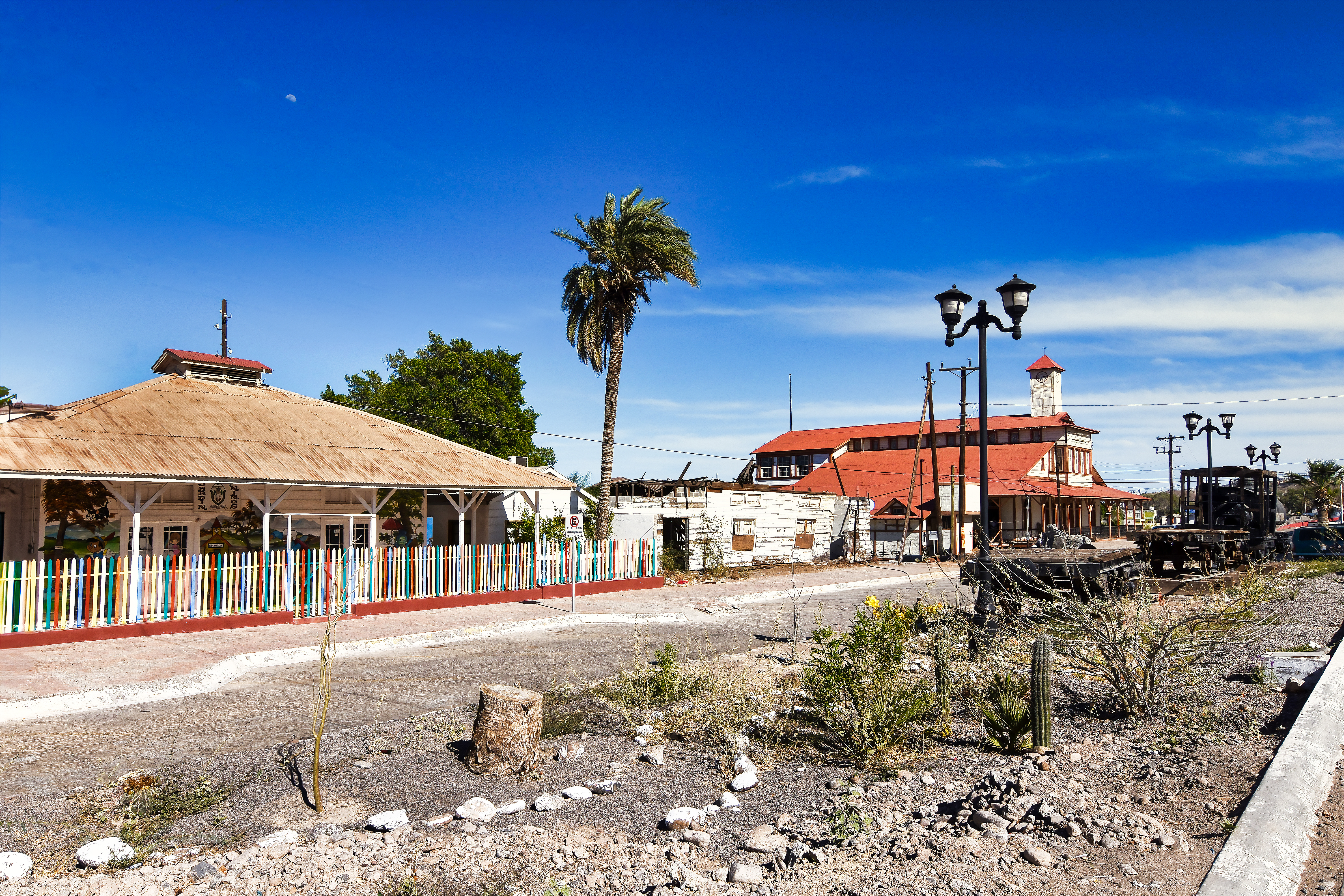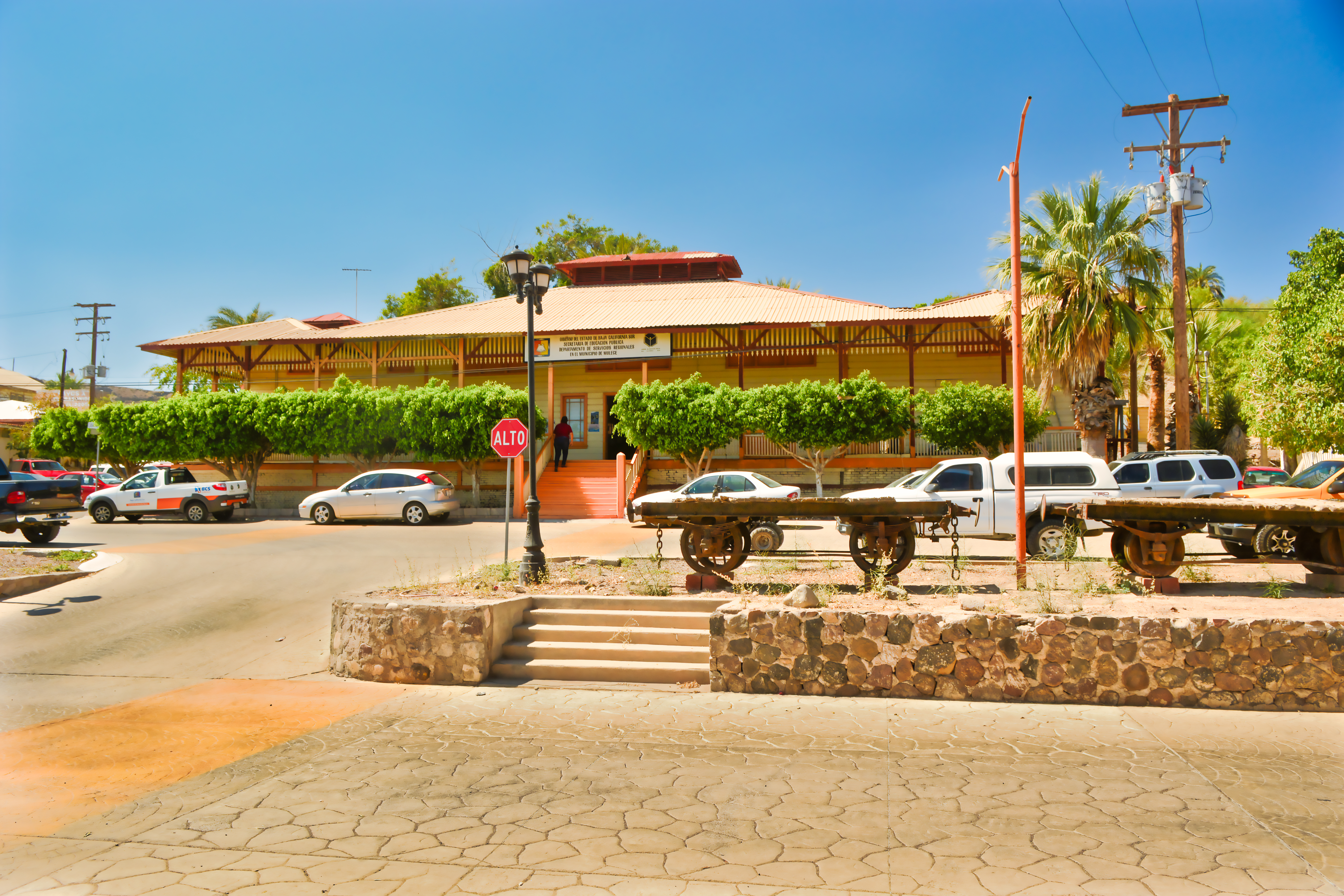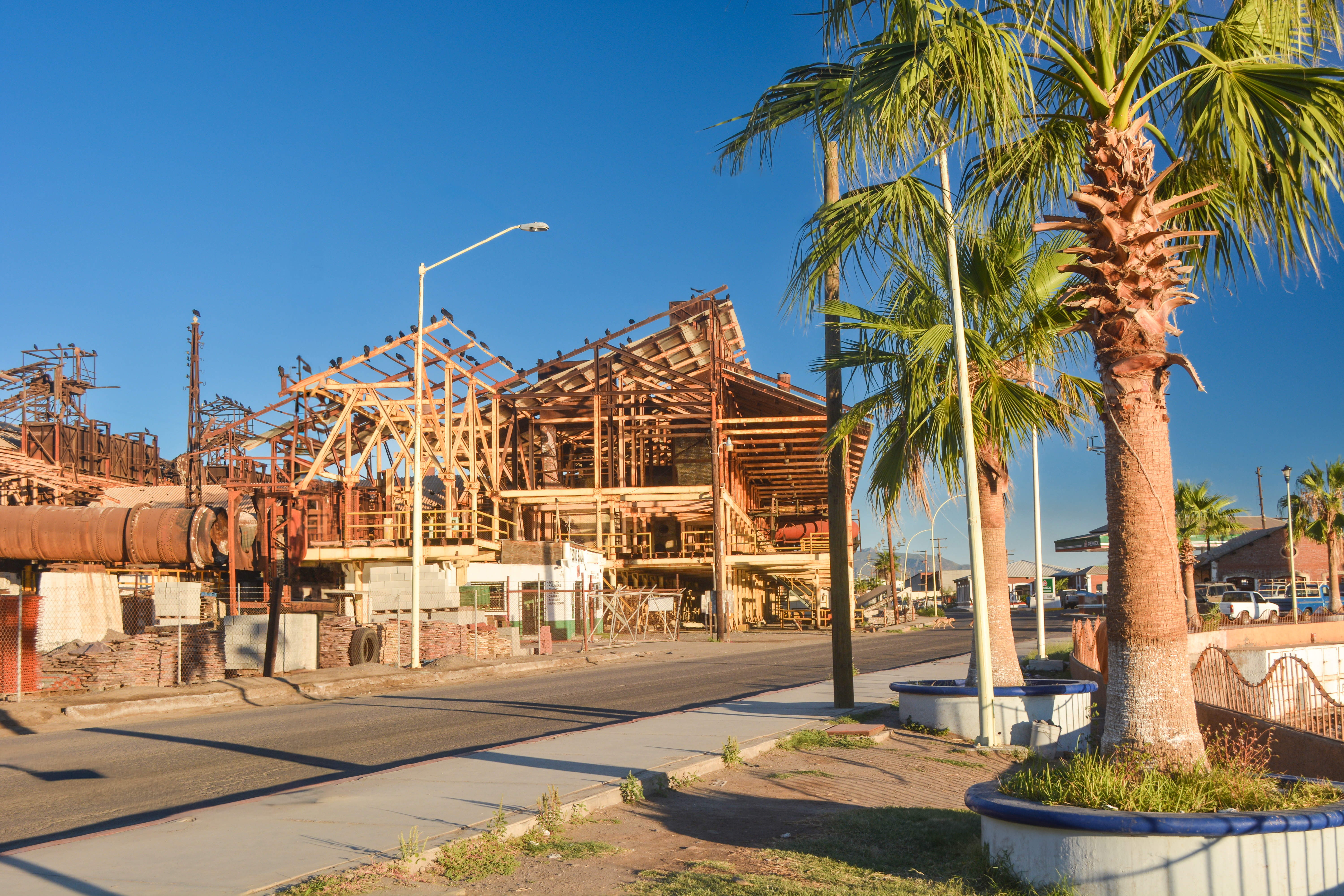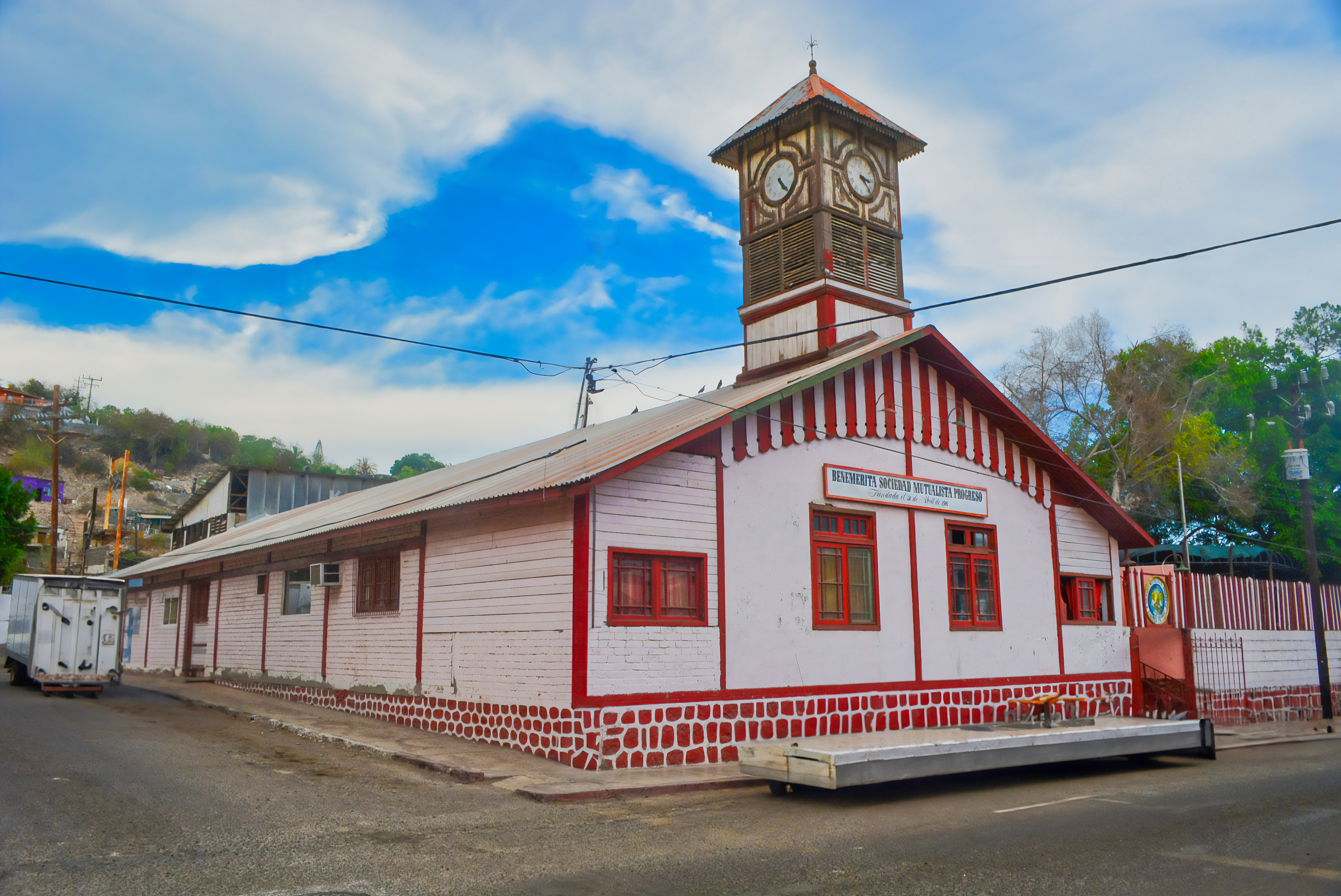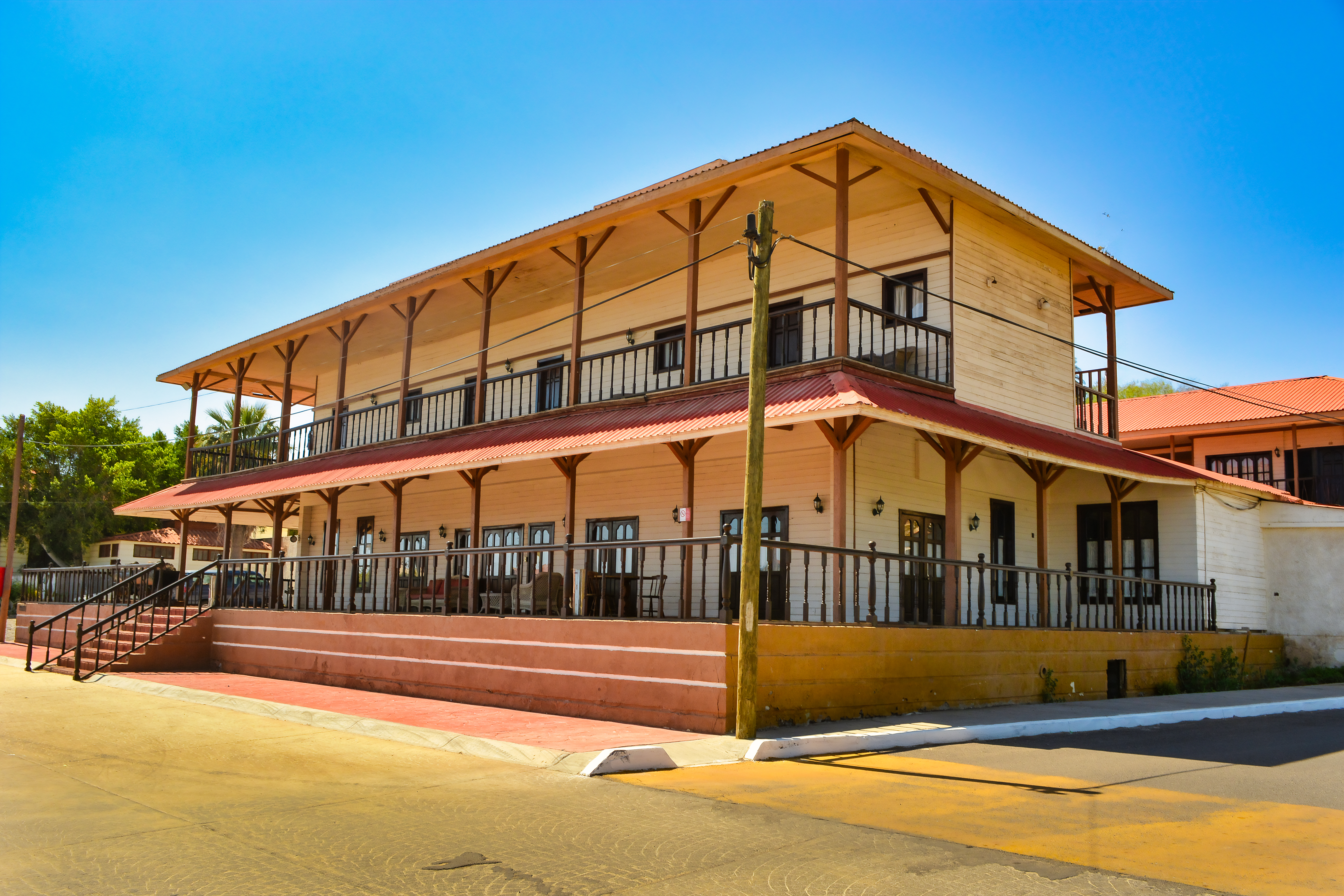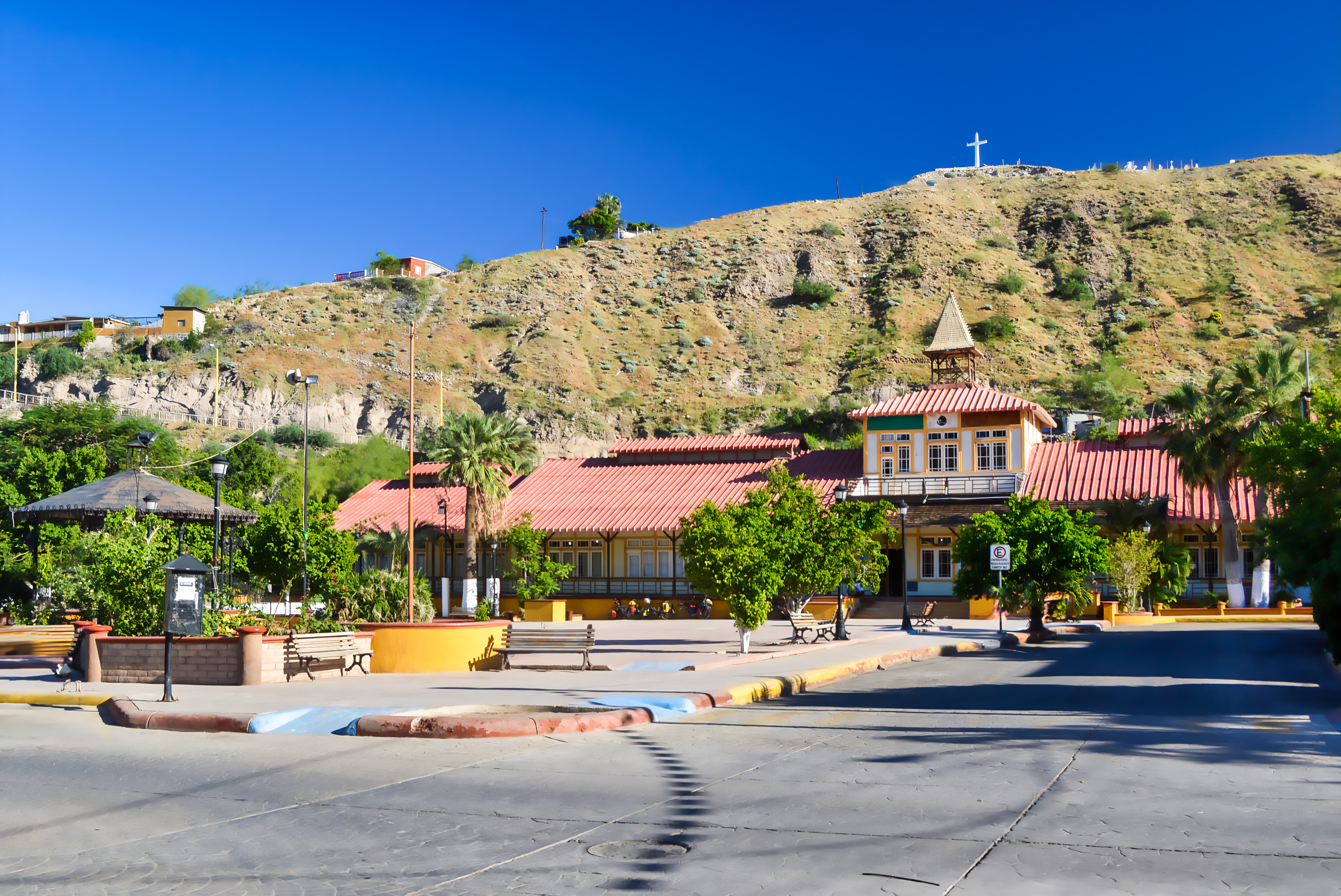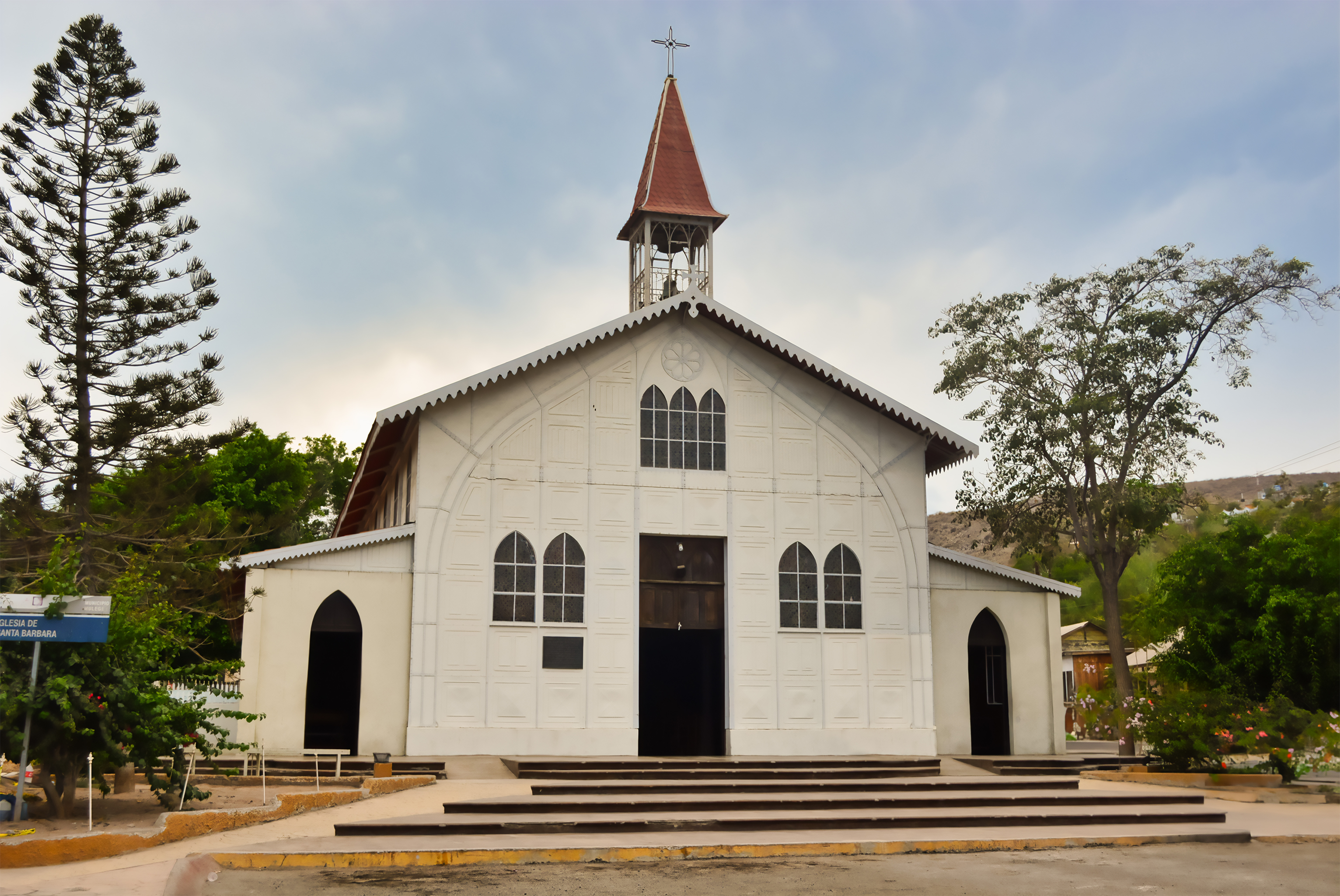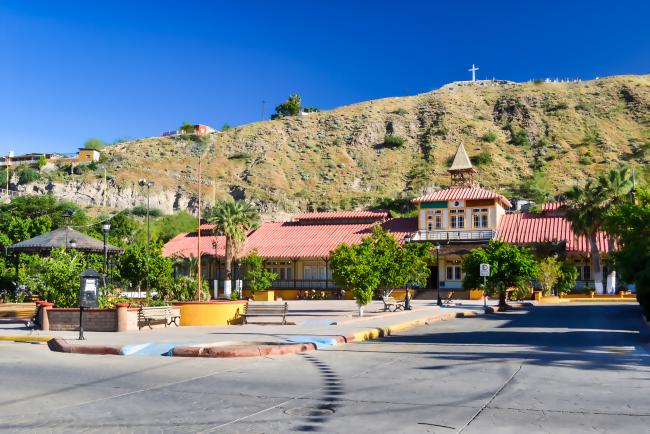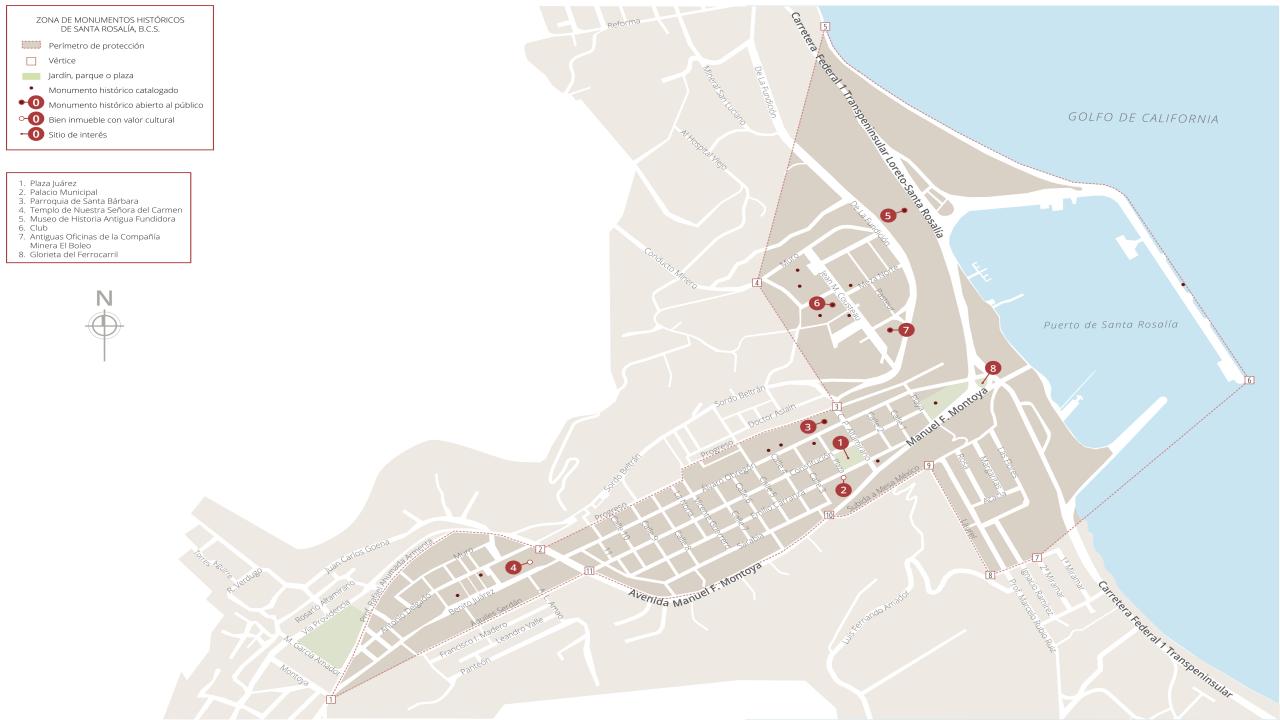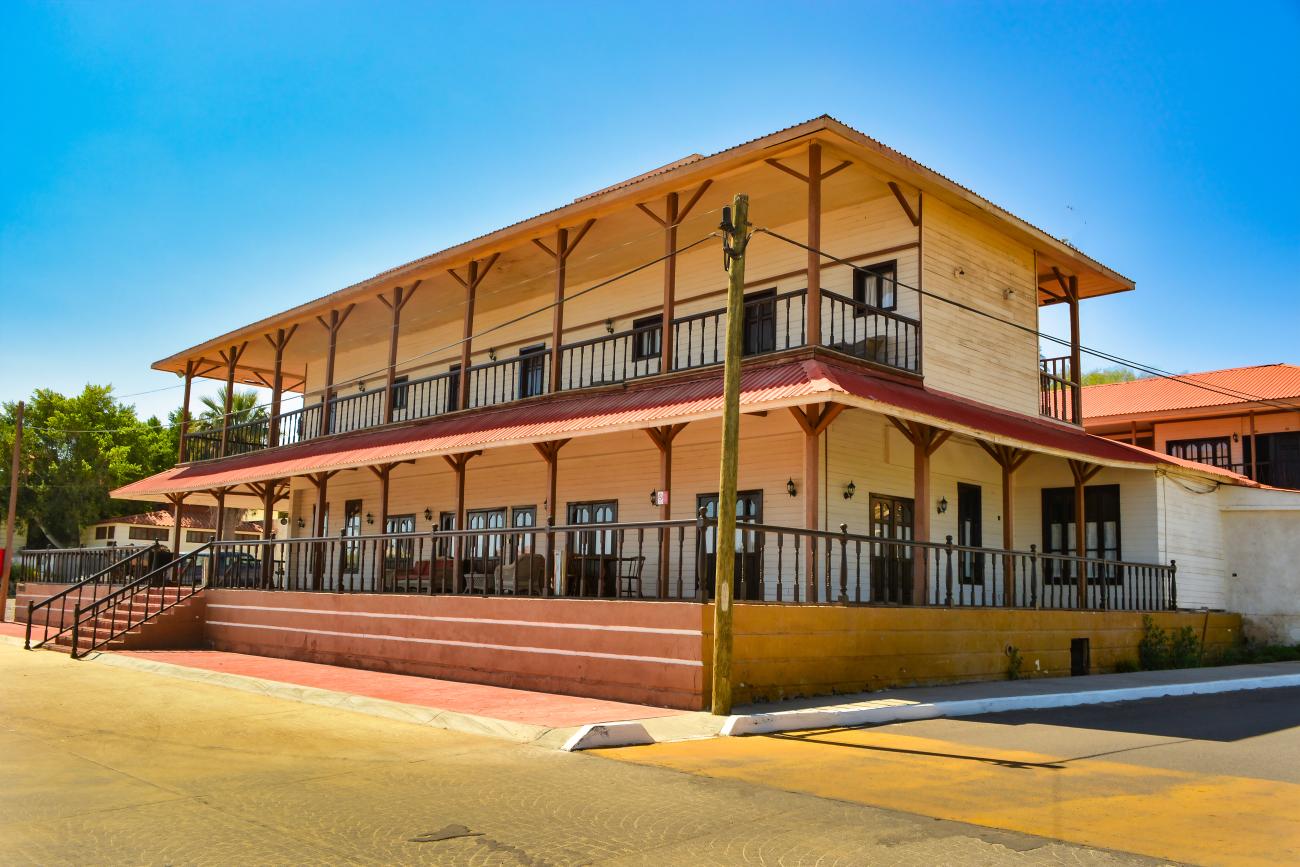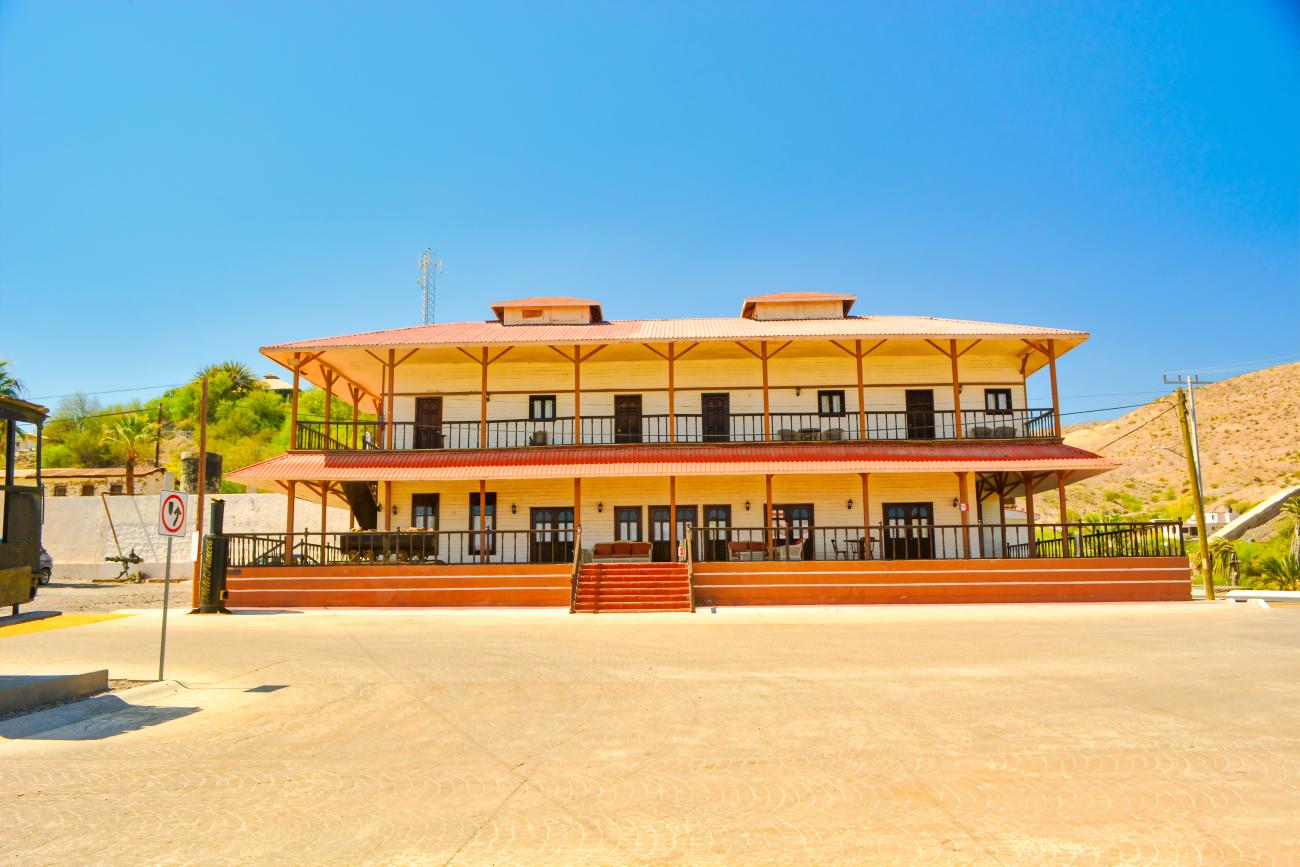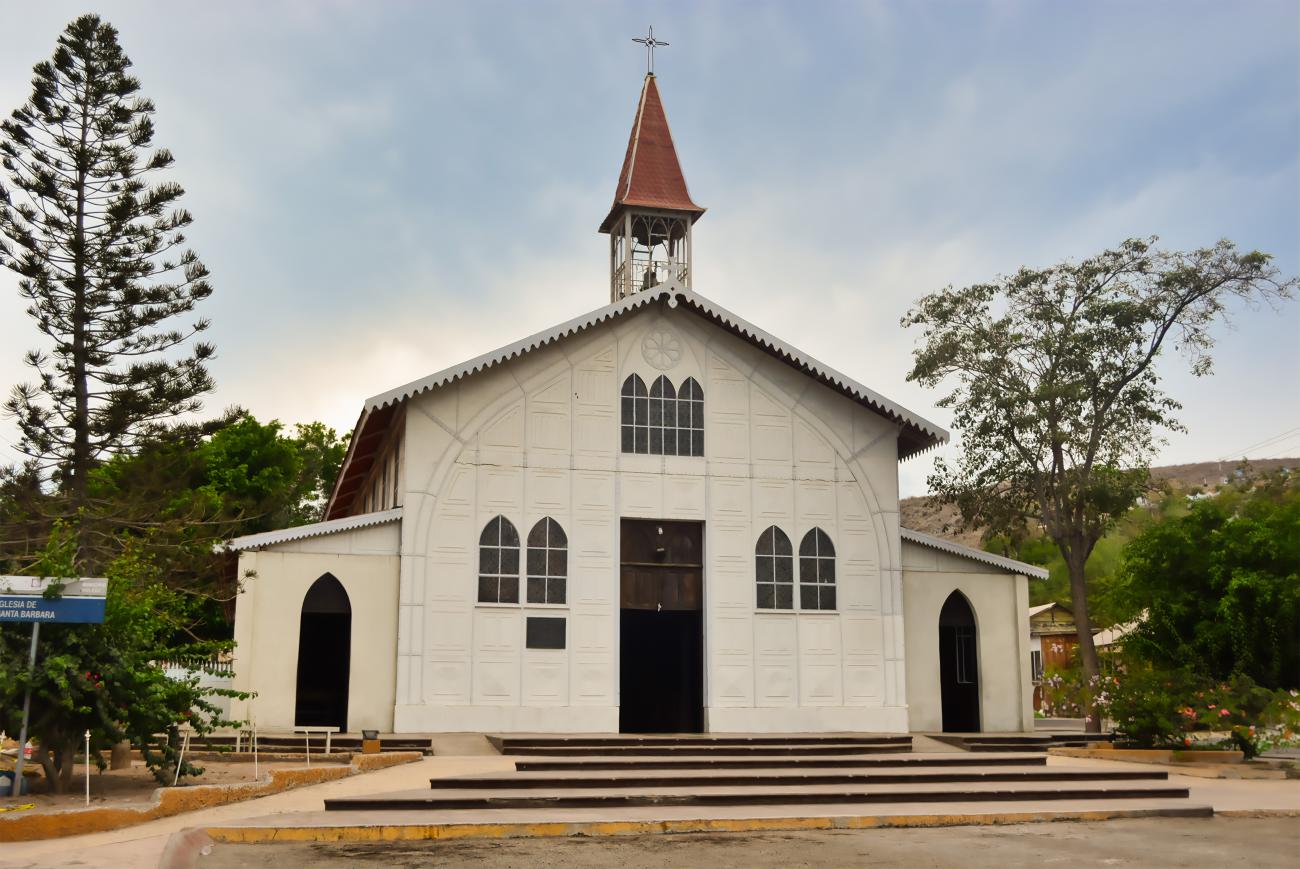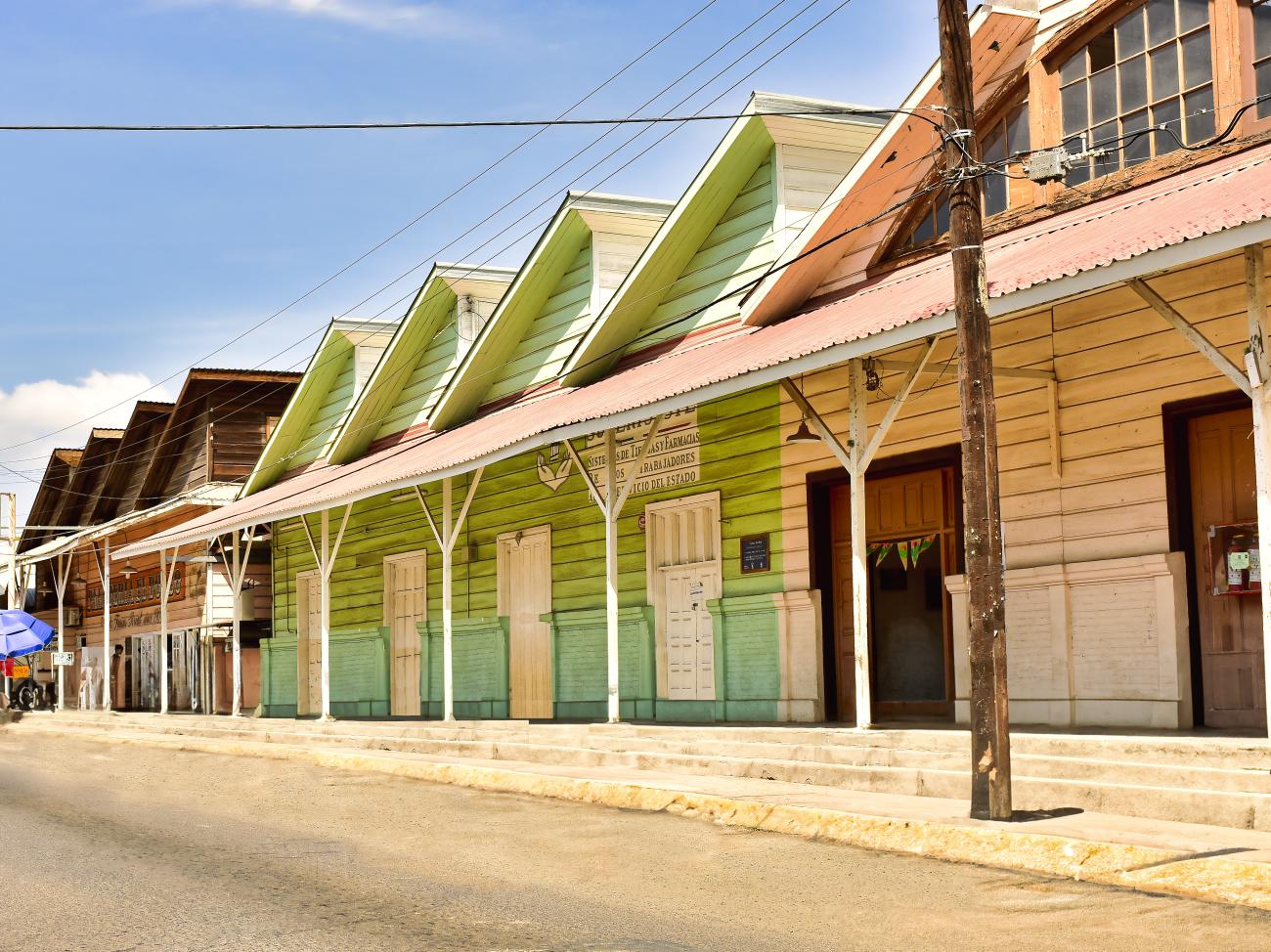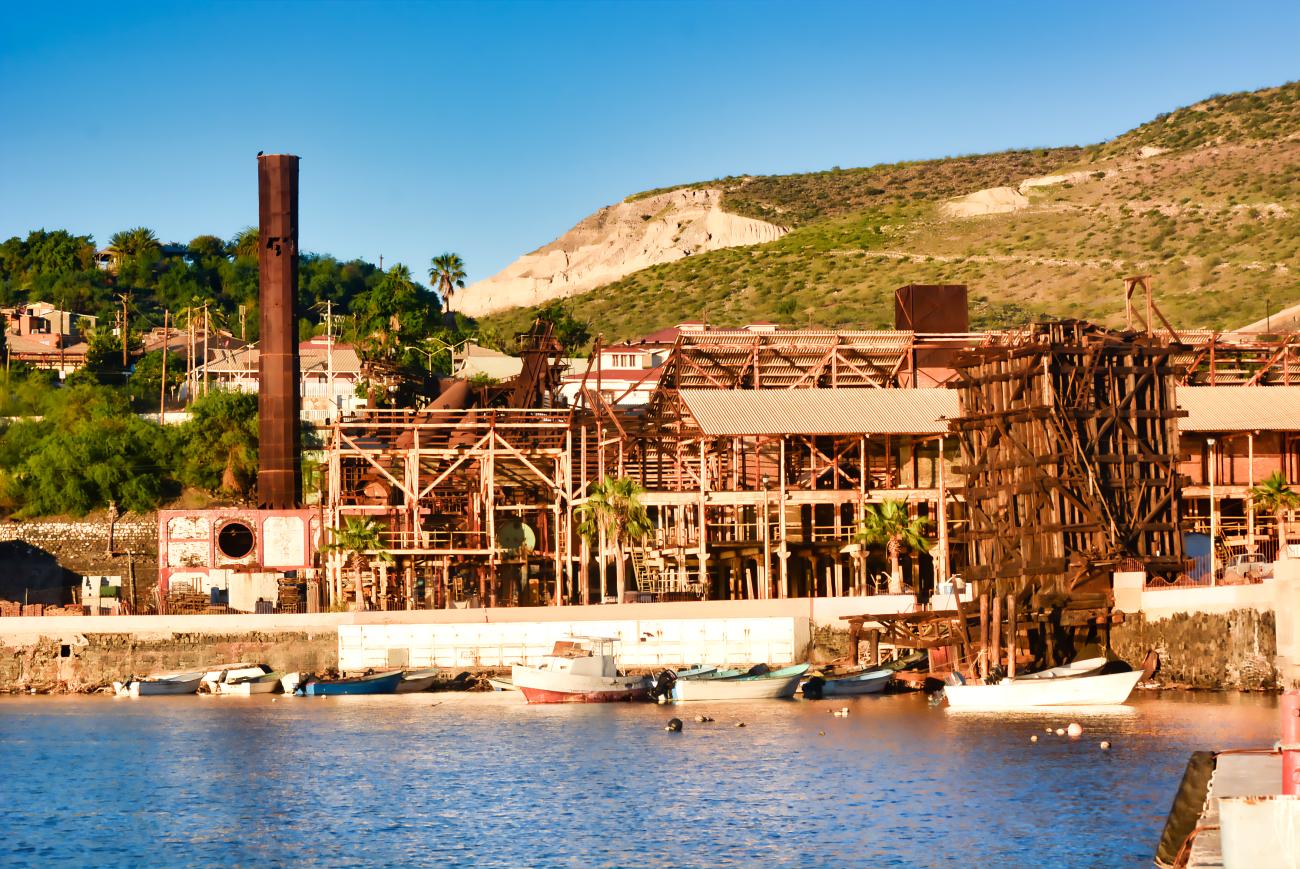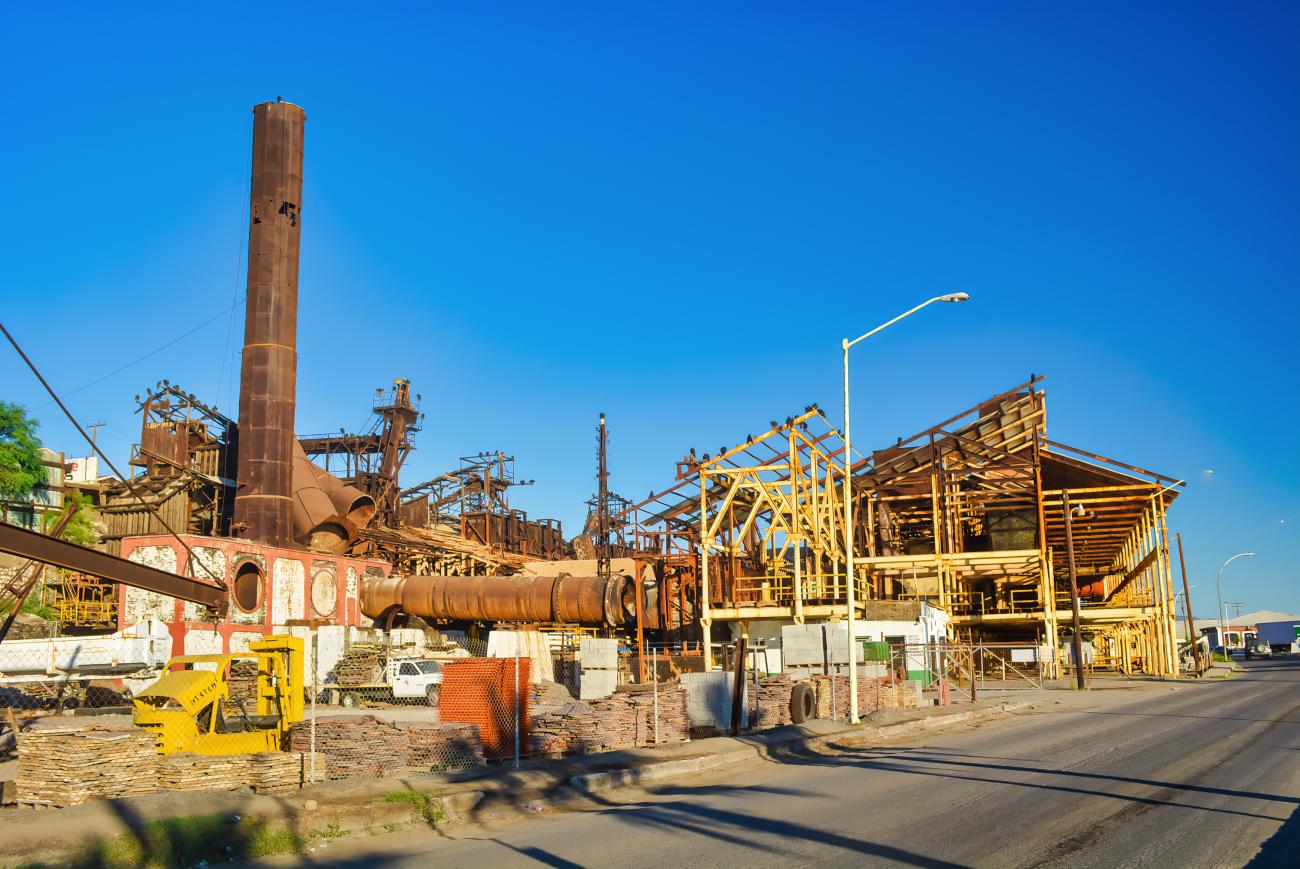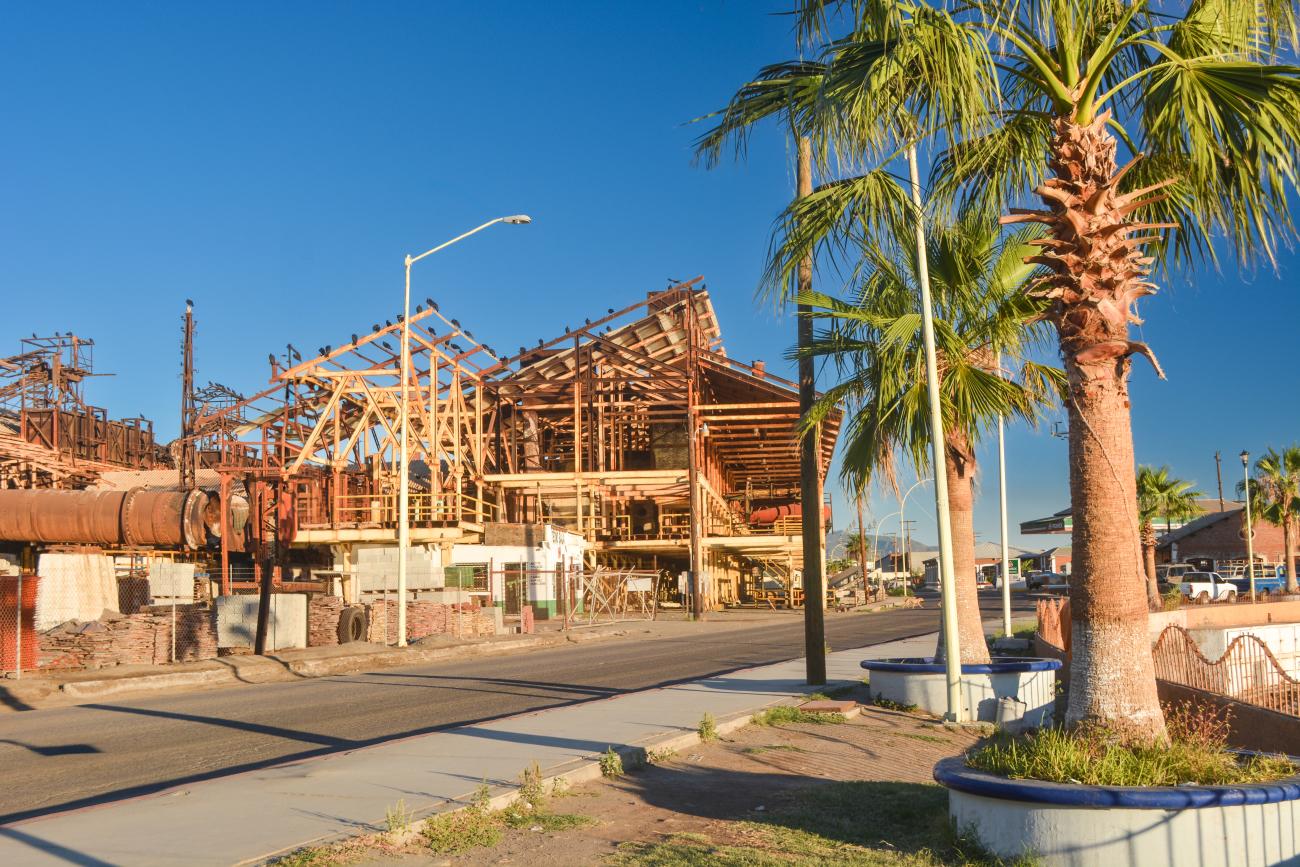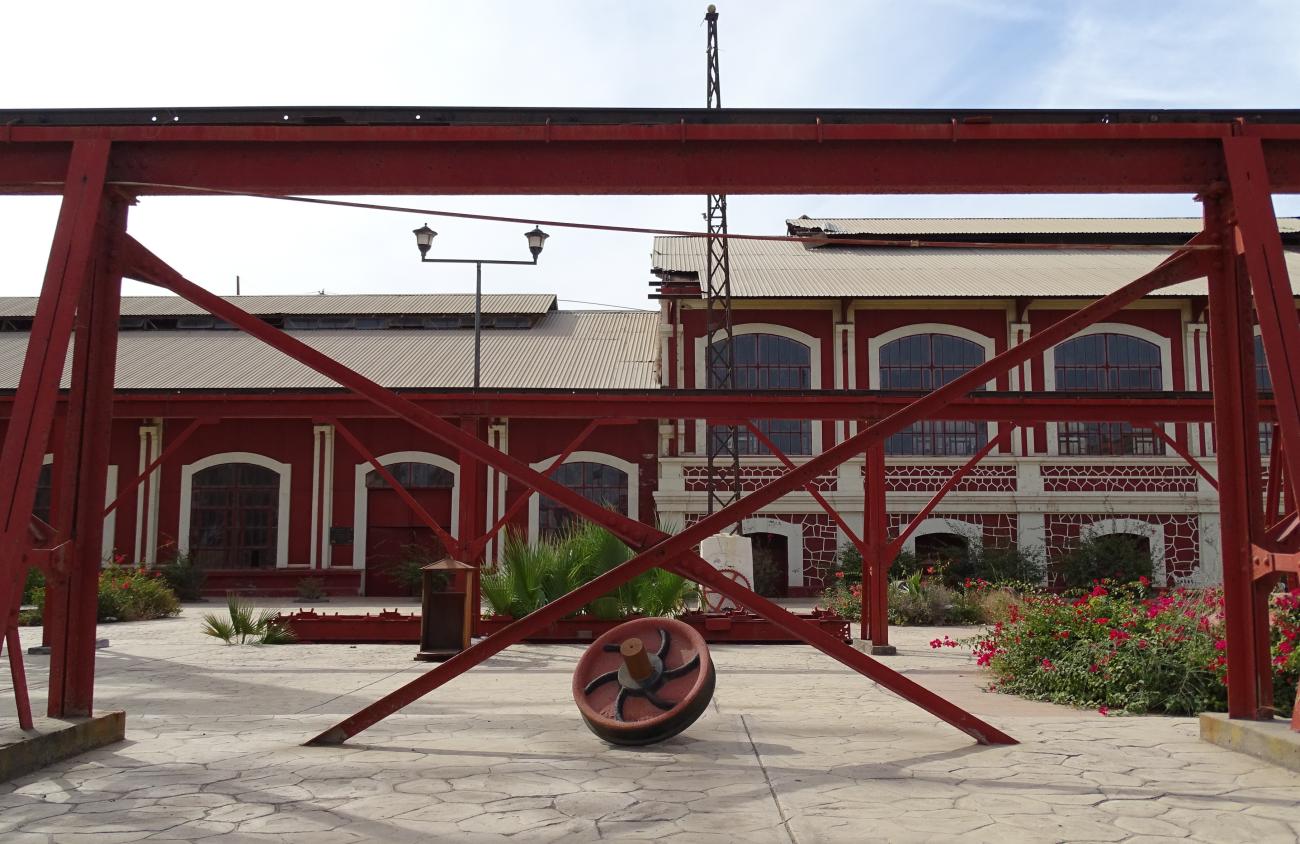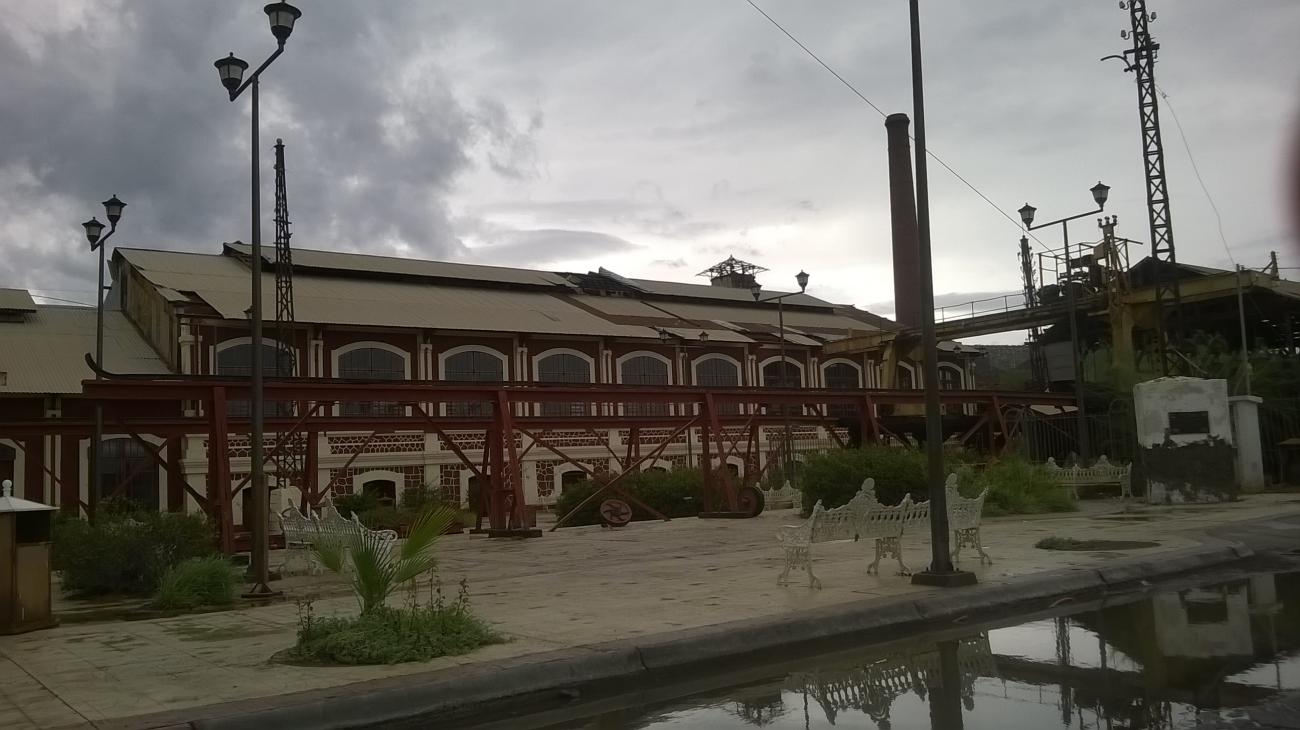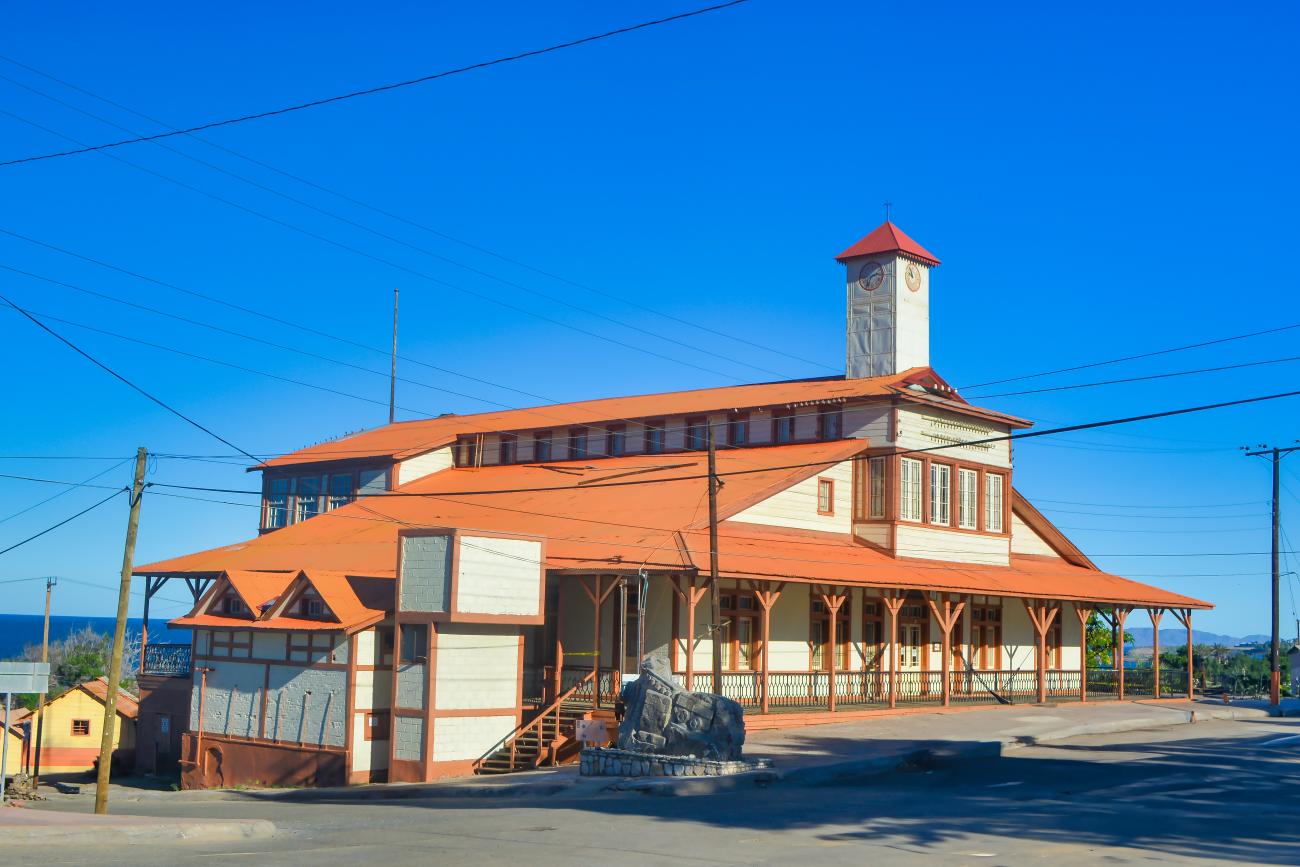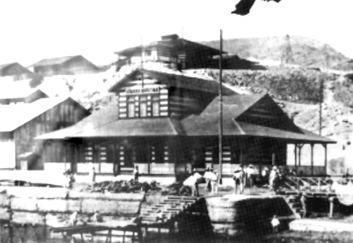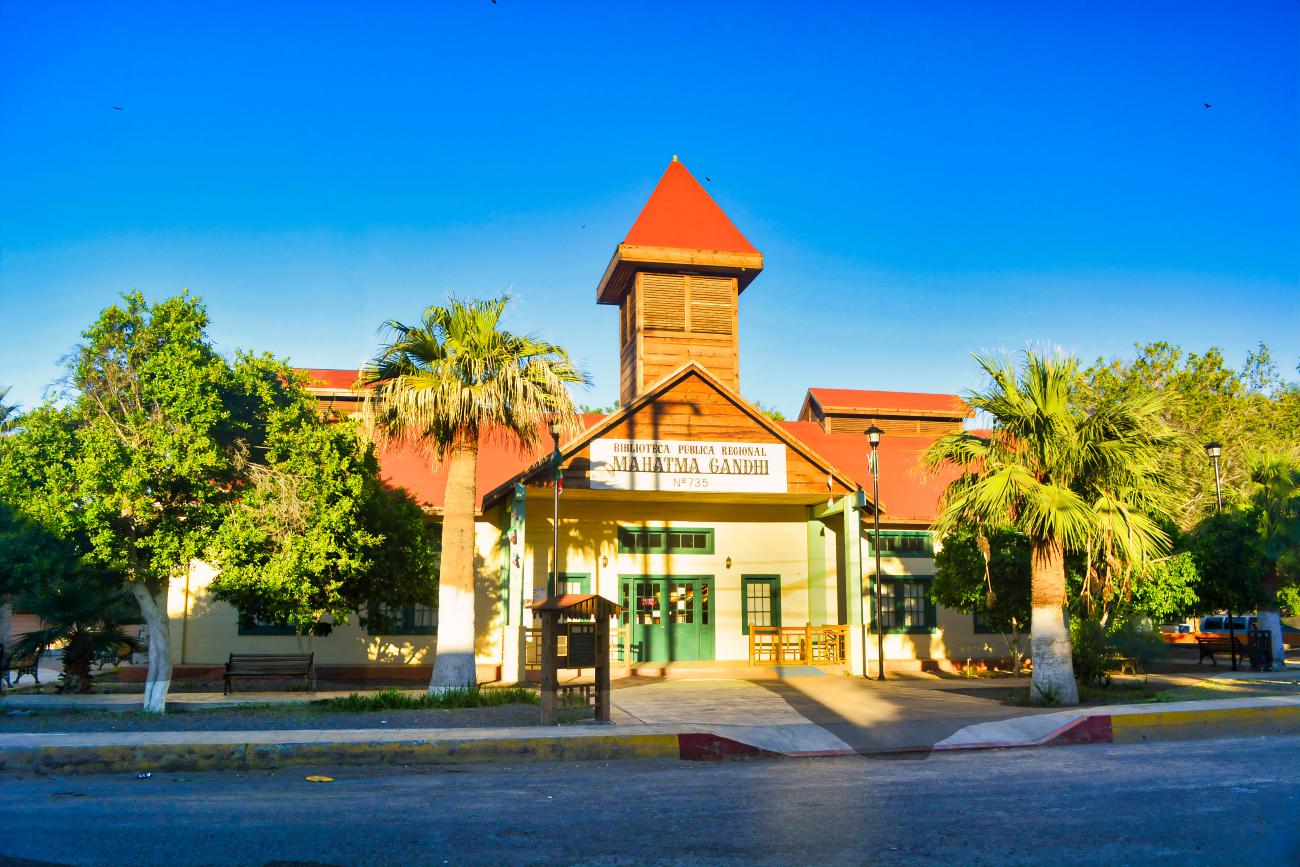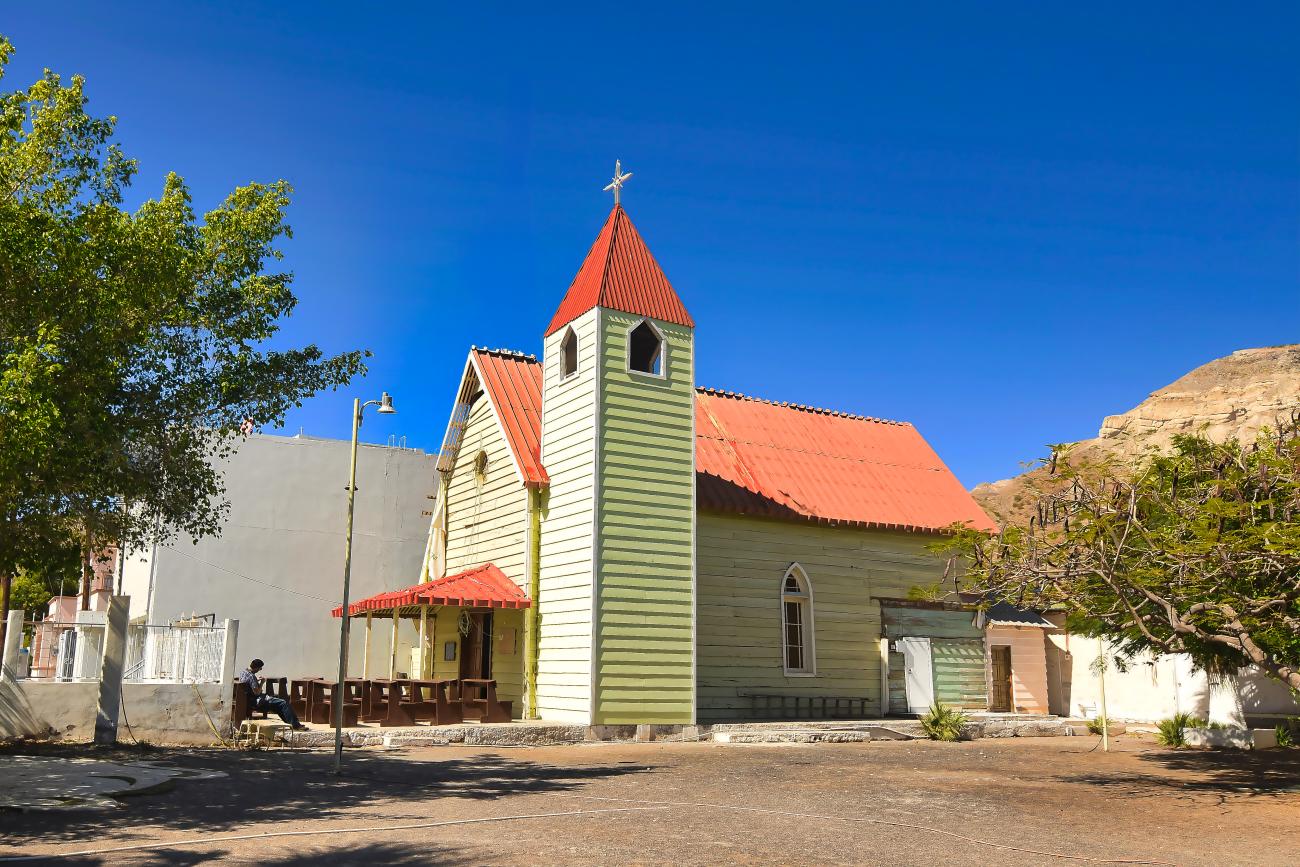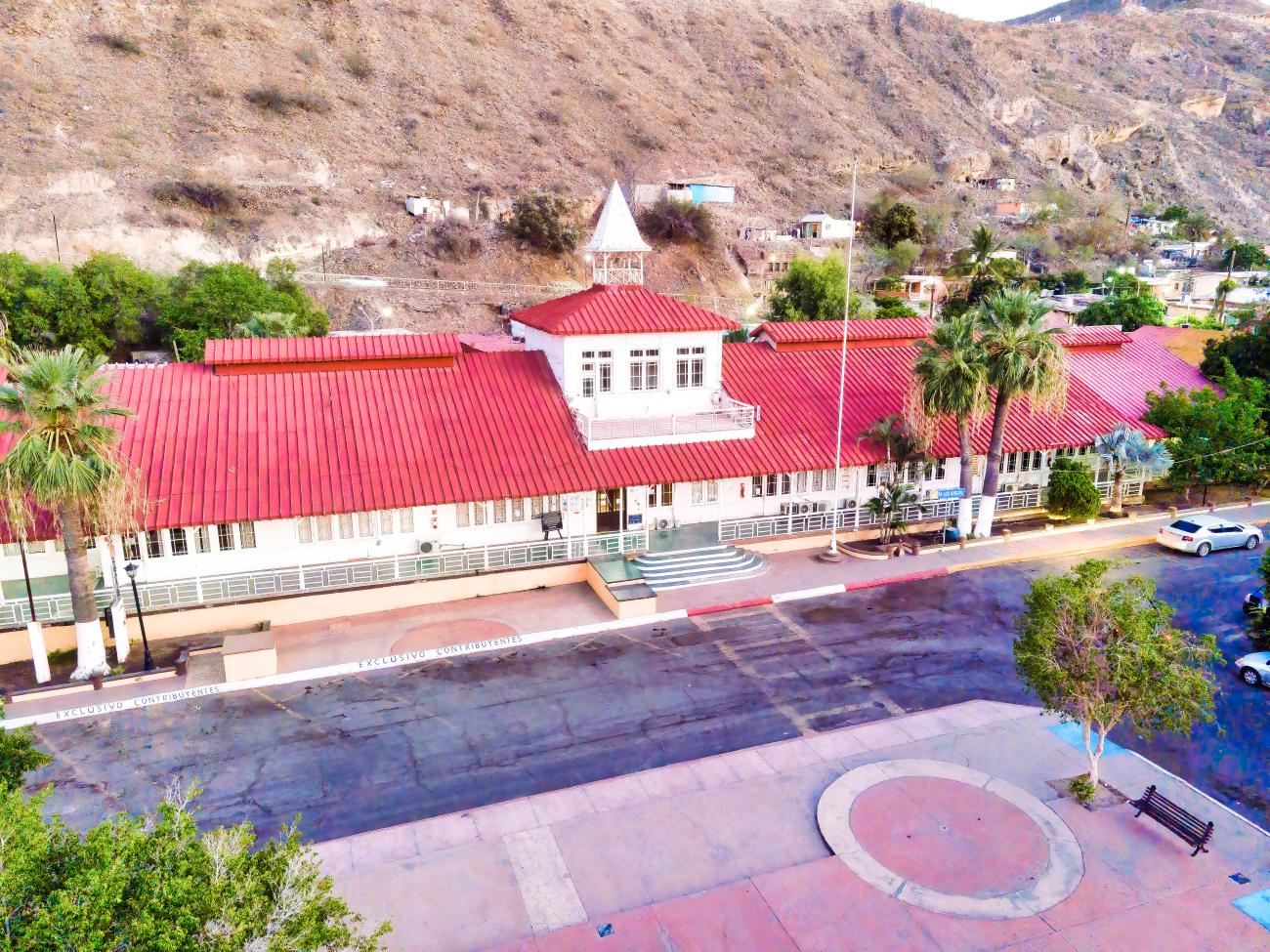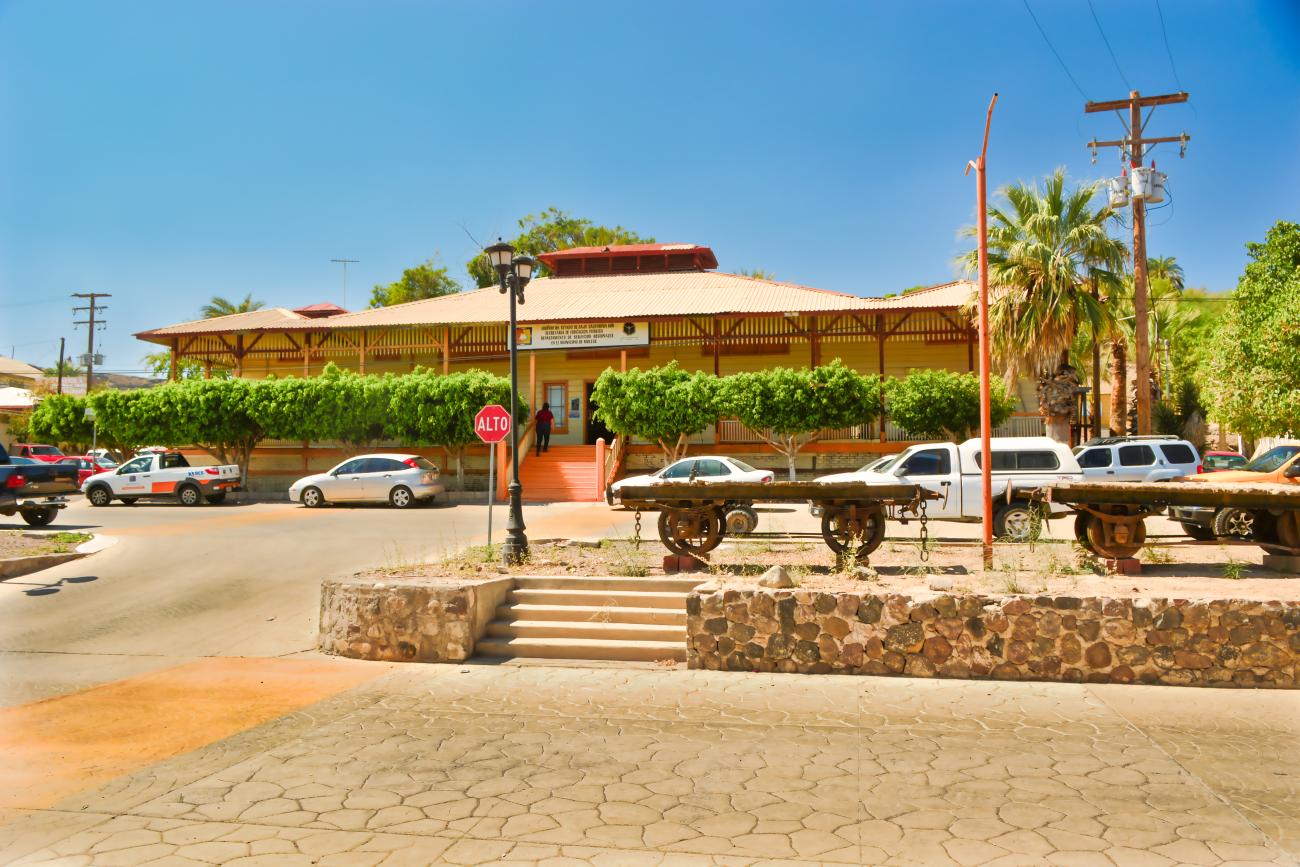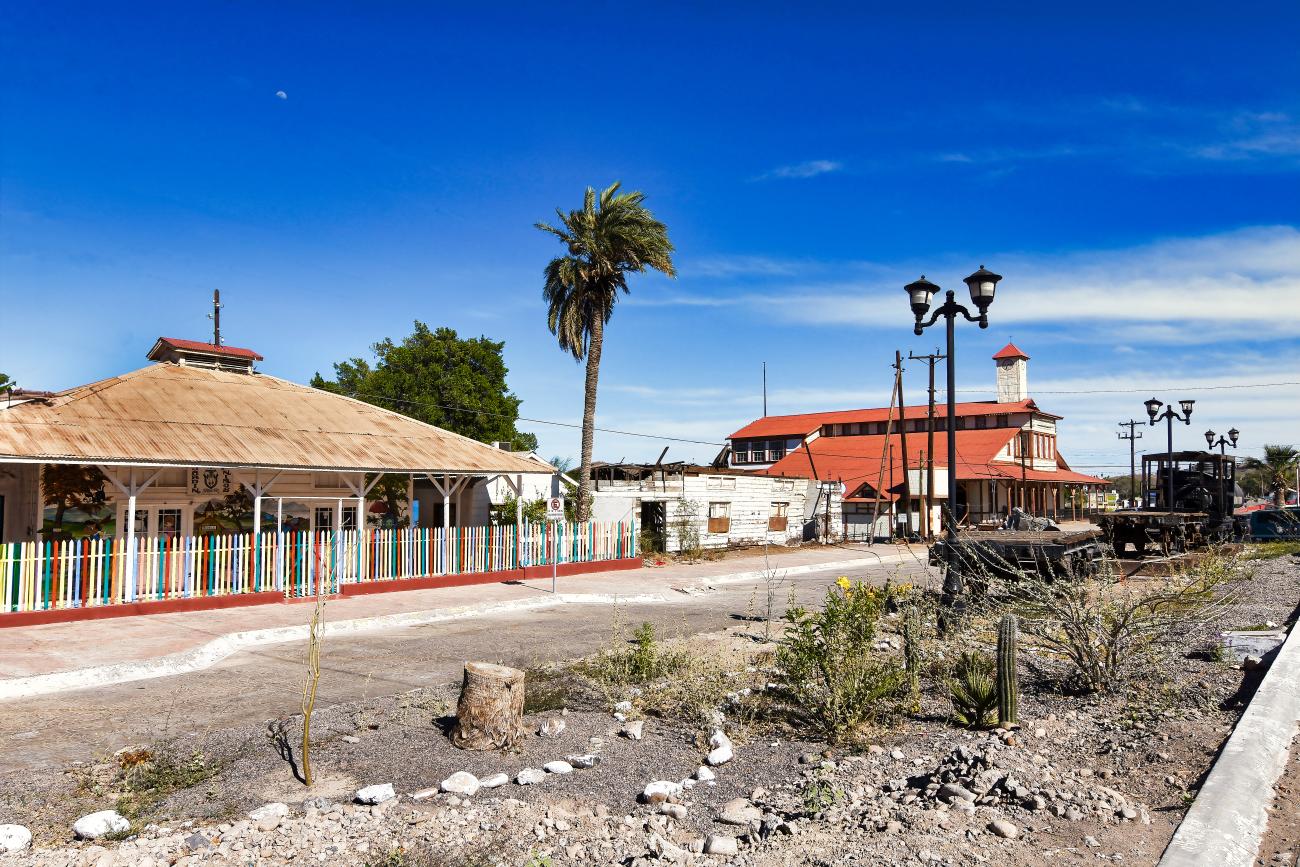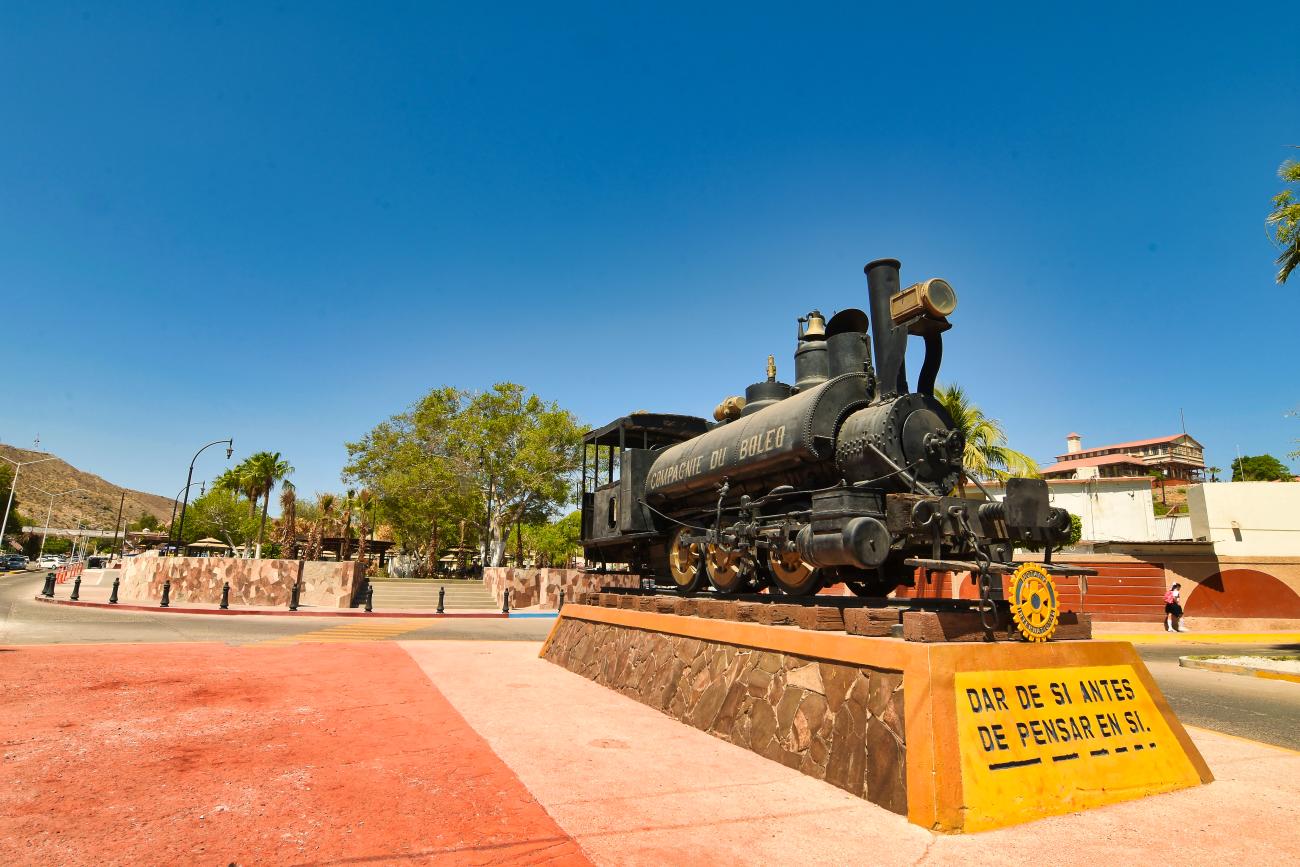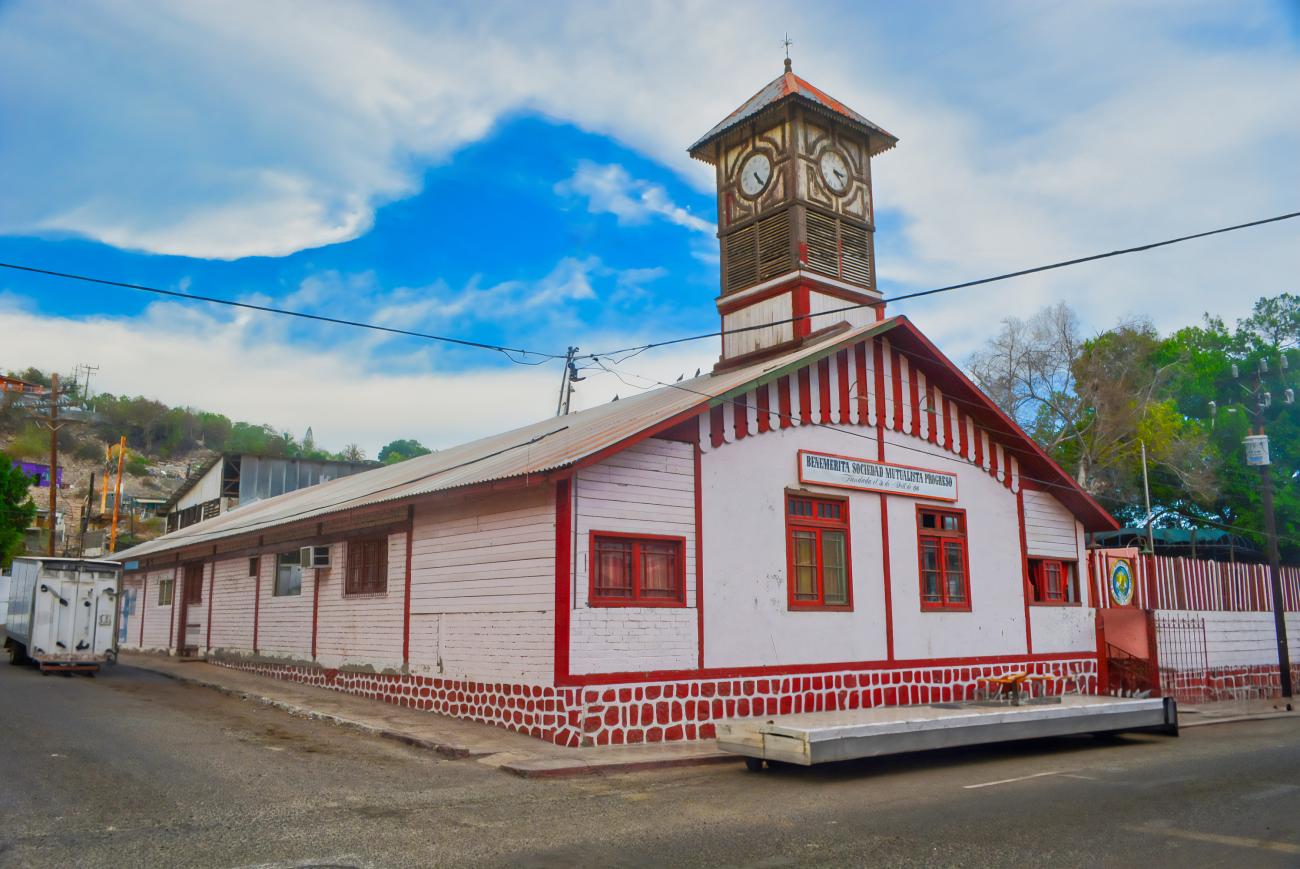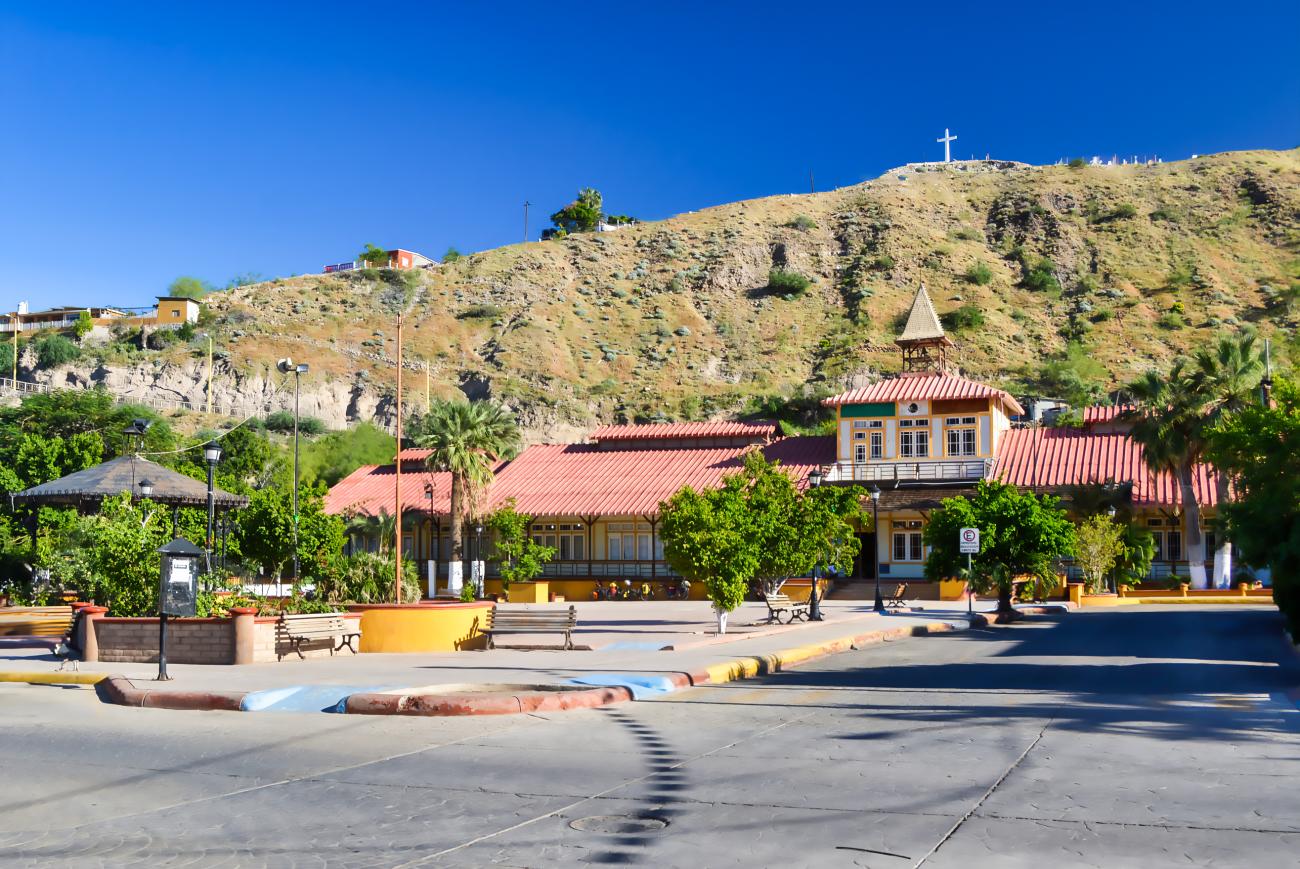Santa Rosalía
Historical Monuments Zone
Abstract
This town offers a fabulous example of urban structure together with original buildings that emerged from the fusion of local and European elements, granting them a unique character.
Santa Rosalía is located in the municipality of Mulegé, in Baja California Sur. It was founded in 1885 following the discovery of copper ore deposits, and the French company El Boleo took charge of establishing the infrastructure needed for its exploitation. For over 50 years, the company extracted copper here, until shutting down operations in 1954. Recently, mining has begun again under the name Minera y Metalúrgica del Boleo (belonging to the company Korea Resources).
The formal characteristics of the city’s buildings, the relation between urban spaces and structure are valuable testimony to the social, economic and political history of Mexico; for these reasons the town of Santa Rosalía, Baja California Sur, was declared a Zone of Historic Monuments on December 5, 1986.
This Zone of Historic Monuments comprises and area of 0.79 km2 in a single perimeter and is made up of 110 blocks with 31 buildings of historical value, all constructed in the 19th century. Some of these had religious purposes, such as the church of Santa Bárbara, the most important in the city, and among the buildings used for educational purposes is the Former School, which today houses the Town Hall.
Other notable constructions in Santa Rosalía are the facilities of the Compañía Minera El Boleo, the Hotel Francis, the Rotary Club, the Manuel Santiesteban Casa Club, the Former House of Distinguished Guests, the Mutual Society and the José María Morelos y Pavón School.
The remaining buildings are private residential properties, many of which display, as a result of the foreign influences on the town, characteristic materials and ornamental details that define a singular local style; these date from the Porfiriato period and into the early 20th century.
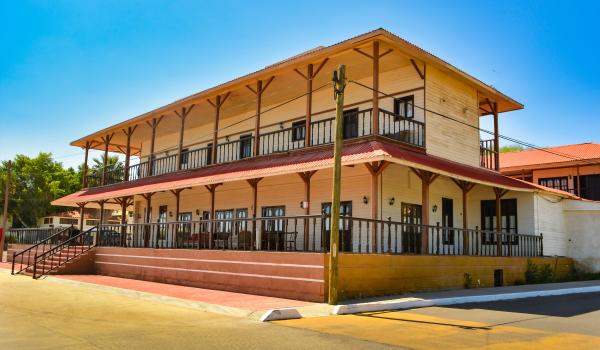
Hotel Francés
19th-century building
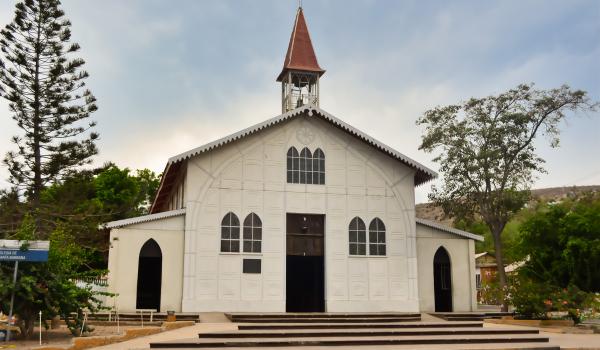
Templo de Santa Bárbara
A building designed in 1884 by the French engineer Gustave Eiffel, constructed in 1887 and exhibited in Paris in 1889, where it won first place alongside the Eiffel Tower. Forque, the administrator of El Boleo, acquired this building at the Brussels exposition in Belgium.
Templo de Santa Bárbara
A building designed in 1884 by the French engineer Gustave Eiffel, constructed in 1887 and exhibited in Paris in 1889, where it won first place alongside the Eiffel Tower. Forque, the administrator of El Boleo, acquired this building at the Brussels exposition in Belgium. The structure was transported on a sailboat owned by El Boleo, arriving in Santa Rosalía at the end of 1895.
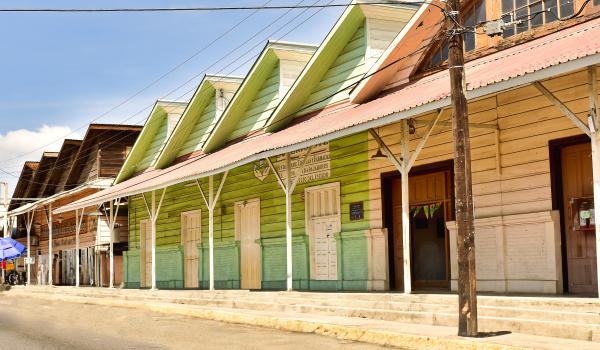
El Boleo
19th-century building
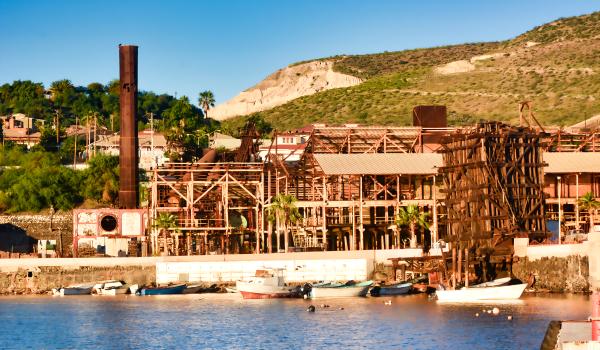
Fundición de minerales
19th-century building
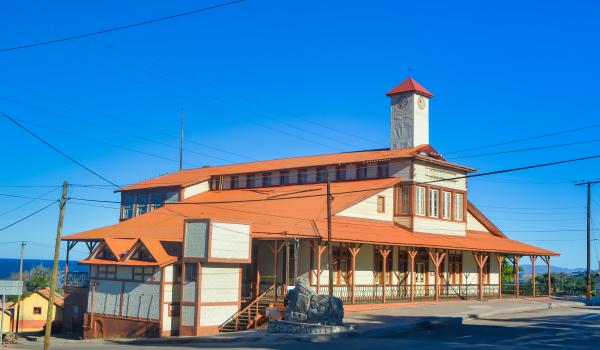
La Compañía
It is believed to have been constructed between 1885 and 1900 by the French. In 1945, it became part of the state-owned company Impulsora Minera e Industria de B.C.
La Compañía
It is believed to have been constructed between 1885 and 1900 by the French. In 1945, it became part of the state-owned company Impulsora Minera e Industria de B.C.
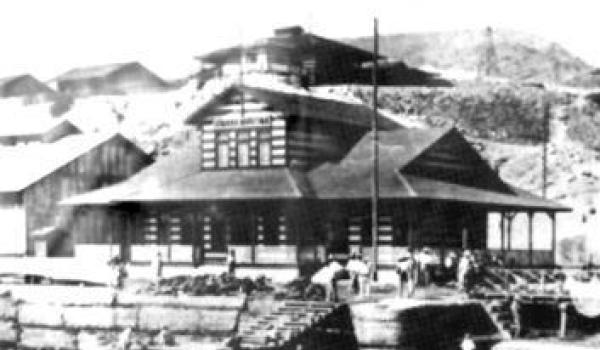
Aduana Marítima
19th-century building constructed for use as a customs office, demolished in 1969 to make way for the current S.H.C.P. building.
Aduana Marítima
19th-century building constructed for use as a customs office, demolished in 1969 to make way for the current S.H.C.P. building.
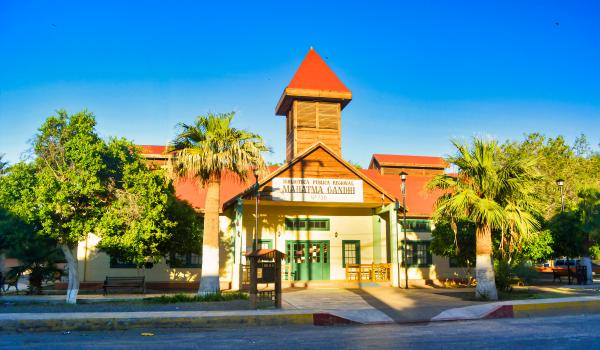
Jardín de niños Morelos
Francisco L. Quintanilla, administrator of the El Boleo company and president of the Rotary Club, commissioned the construction of this building to house a kindergarten in February 1950.
n>
Jardín de niños Morelos
Francisco L. Quintanilla, administrator of the El Boleo company and president of the Rotary Club, commissioned the construction of this building to house a kindergarten in February 1950.
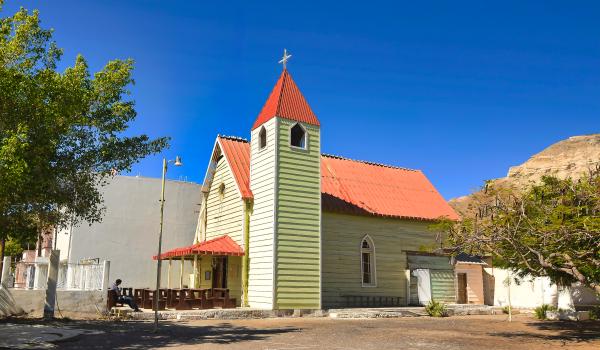
n>
Templo de Nuestra Señora del Carmen
20th-century religious building
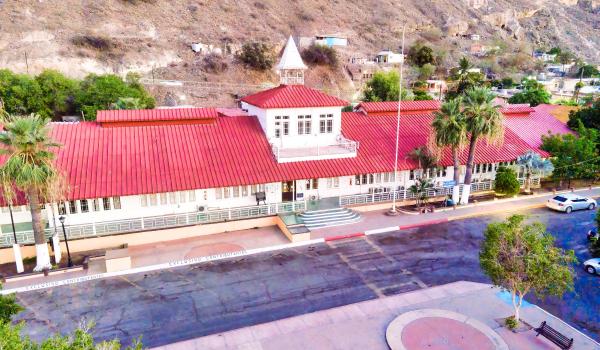
Palacio Municipal
Building constructed in 1902 based on the plans of architect Eiffel. It initially served as the Escuela Artículo 123 Leona Vicario or the Boleo School. In 1923, it was destroyed by fire due to faulty electrical wiring and was rebuilt in 1925.
n>
Palacio Municipal
Building constructed in 1902 based on the plans of architect Eiffel. It initially served as the Escuela Artículo 123 Leona Vicario or the Boleo School. In 1923, it was destroyed by fire due to faulty electrical wiring and was rebuilt in 1925. In 1978, it was restored and adapted for use as the offices of the Honorable Municipality of Mulegé.
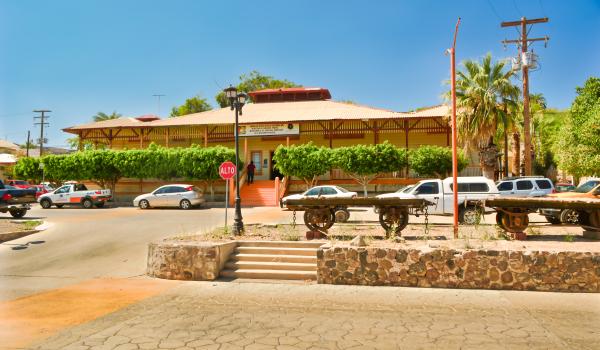
Servicios regionales Santa Rosalía
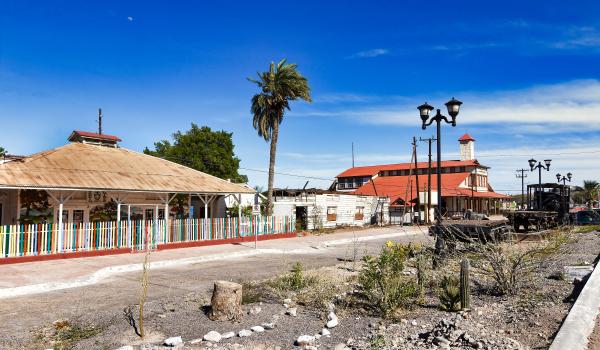
Jardín de niños
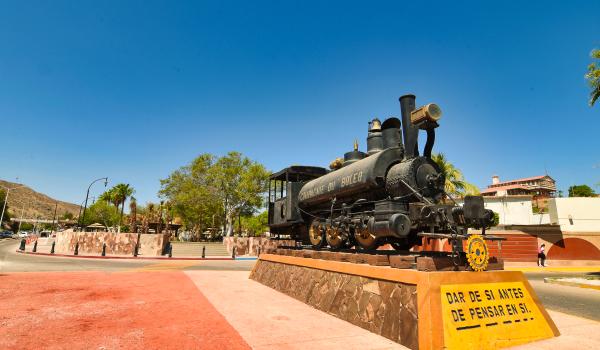
Parque José María Morelos y Pavón
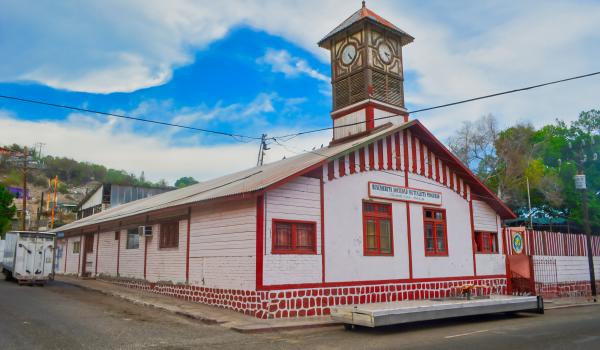
Sociedad Mutualista Progreso
Founded on April 30, 1916, with the aim of providing moral and financial support to workers in cases of personal misfortune such as illness or death. It currently serves as a gathering place for various social and cultural events, as well as a shelter in times of disaster.
Sociedad Mutualista Progreso
Founded on April 30, 1916, with the aim of providing moral and financial support to workers in cases of personal misfortune such as illness or death. It currently serves as a gathering place for various social and cultural events, as well as a shelter in times of disaster.

